Sustainability Report 2024
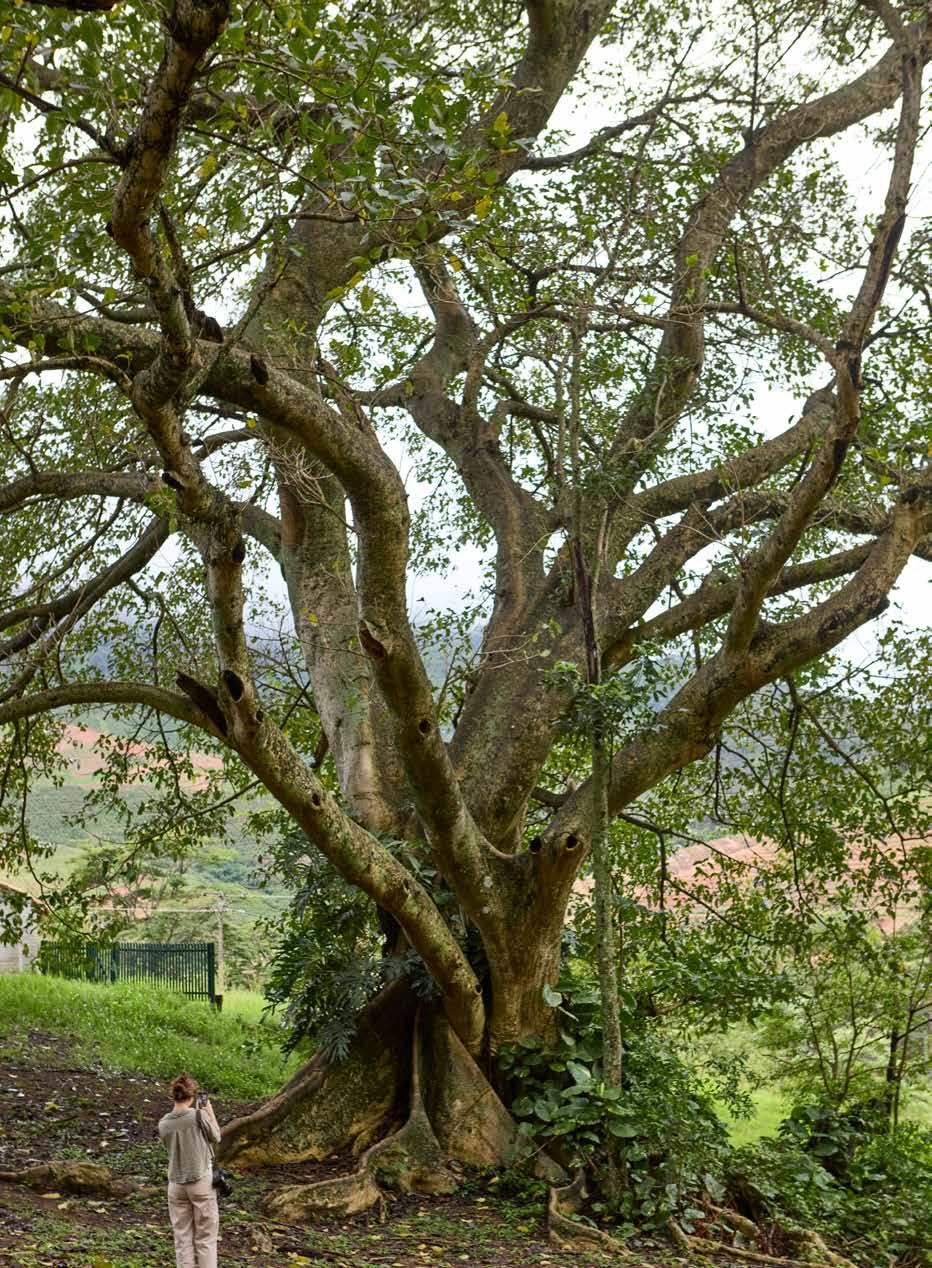
1. Company profile
1.1 Corporate structure
1.2 Business model
1.3 Blaser Group in figures
1.4 Company history
1.5 The Blaser family and its values
1.6 The Blaser Group as an employer
2. Sustainability
2.1 Overview - Sustainability measures
2.2 Principles and strategy
2.3 Risk analysis
2.4 Reporting procedure
3. Green coffee
3.1 Facts about green coffee trade
3.2 Challenges in the countries of origin
3.3 Our measures at the origin 3.4 Quality control
3.5 Transport
4. Roasted coffee
4.1 Facts about roasted coffee production
4.2 Challenges
4.3 Our measures
4.4 Sustainable products
5. Outlook
5.1 A look into the future
6. Appendix
6.1 Memberships & certificates
Responsibility by tradition
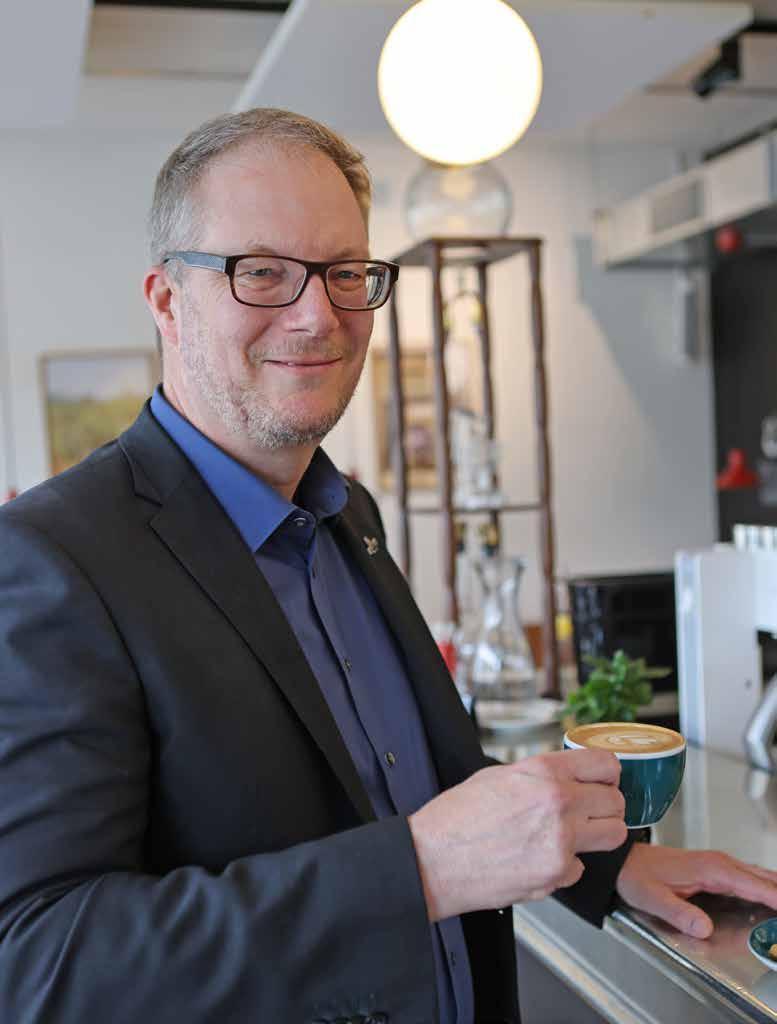
Director Blaser Trading AG
Dear Reader, dear
Customer,
We have been dealing in green coffee for more than a century – with passion, responsibility and a firm commitment to long-term thinking. As a family business, it has always been important to us to make decisions that are not only economically sound, but which are also socially just and ecologically sustainable. This principle has characterised our actions – then as now.
We were confronted with considerable challenges in the past year: Turbulent developments on the raw materials markets, unstable supply chains and geopolitical uncertainties have put our industry to the test.
In this situation, our cautious, conventional and at the same time far-sighted corporate management has once again proven its worth. Thanks to long-standing, trusting partnerships and solid financing from our own resources, we were able to successfully overcome these challenges.
We have set ourselves the goal of embedding sustainability measures in the company in such a way that they are supported by all employees. In our daily interactions, in the selection of our partners and in our use of resources. We are aware that small steps can make a big difference. Our focus is where we see real opportunities to make an effective change.
This report shows how we are meeting this challenge, where we have already achieved a great deal and where we want to continue improving.
We wish you enjoyable reading
Dominik Bangerter Managing Director Blaser Trading AG
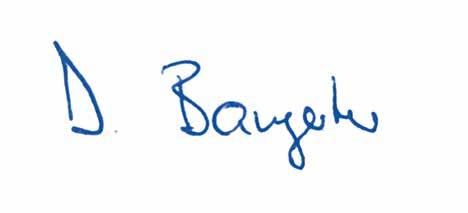
1.1 Corporate structure
Blacafé Holding AG*
Board of Directors
Markus Blaser Chairman of the Board of Directors
Paul Flückiger Vice Chairman
Sergio Prete Member (joined on 26 May 2025)
Ursula Linder Member (joined on 26 May 2025)
Vincent Studer Member (joined on 26 May 2025)
Daniel Badilatti Member (resignation effective 26 May 2025)
Adelio Bernini Member (resignation effective 26 May 2025)
Blaser Café AG
Coffee roasters
Management
Marc Käppeli CEO / Sales
Christoph Lauper Operations / Internal Services
Stefano Zoratti Finance / IT
Michael Blaser Marketing
Bettina Blaser Human Resources
Blaser Trading AG
Green coffee trade
Management
Dominik Bangerter CEO
Michele Brandinu Head of Trading
Thomas Quinche Green Coffee Trader
Marc Käppeli Management
Stefano Zoratti Finance / IT
Michael Blaser Marketing
Bettina Blaser Human Resources
Sergio Prete CEO (Transfer to VR Blacafé Holding as at 31 Dec. 2024)
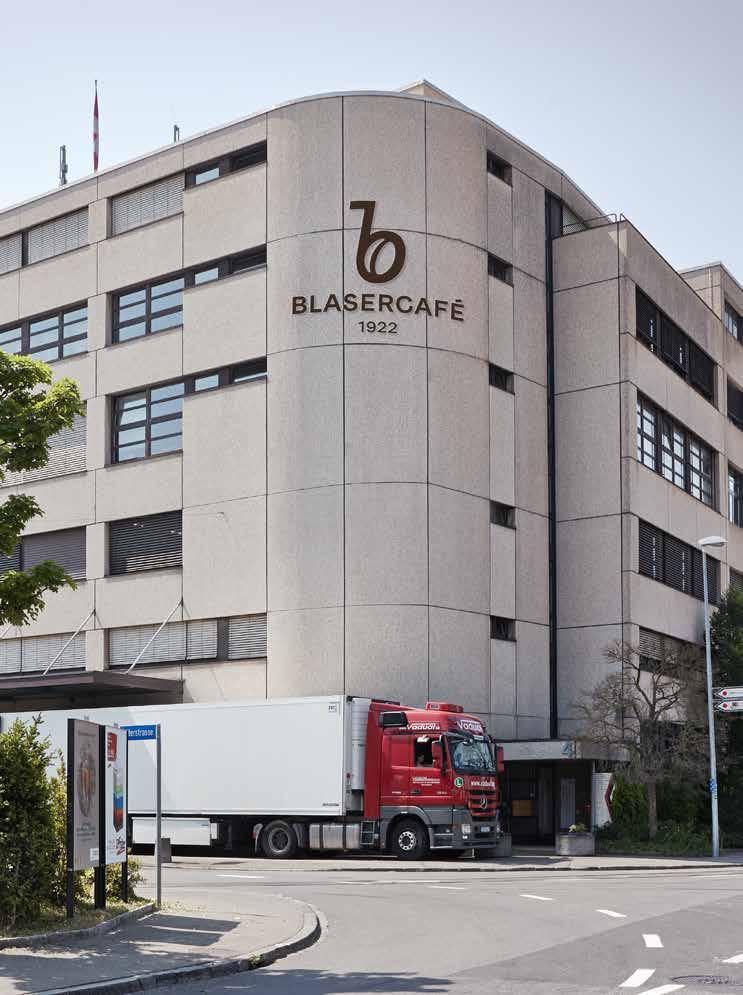

1.2 Business model
Blaser Café AG
Coffee roasters
Blasercafé is a coffee roasting company that produces in the city of Bern and has remained entirely in family hands since it was founded in 1922. The core business is the production and distribution of high-quality roasted coffee in Switzerland and abroad. Downstream, Blasercafé supports catering customers throughout Switzerland with quality control of coffee beverages and training with a field service team made up of certified coffee specialists.
Blasercafé only uses first-class green coffees for its coffee blends, which are purchased through its sister company Blaser Trading. The product range includes roasted coffee in beans, ground coffee and E.S.E. pods, also including special packaging (e.g. pillows for airlines) and customised packaging, i.e. so-called "private label" coffees.
The Blasercafé range is primarily aimed at the catering trade (hotels, restaurants, bars, cafés, hospitals and company catering) and special markets (catering for airlines). At the Rösterei Kaffee und Bar in Bern, private customers can enjoy the high-quality coffees and purchase coffee blends, espresso machines and barista equipment for their homes in the associated shops. The web shop is also available as a sales channel.
In the training room at the company's headquarters on Güterstrasse in Bern, course participants learn all about coffee. . In addition to internally developed courses, internationally recognised courses from the SCA Coffee Diploma System are also held on a regular basis.
Blaser Trading AG
Green coffee trade
Blaser Trading is an international coffee trading company whose origins date back to the founding years of Blasercafé. It specialises in supplying green coffee to roasting plants all over the world and has preserved and constantly expanded this unique knowledge for over 100 years.
Blaser Trading is committed to respectful, fair and long-term business relationships along the entire value chain. The company has access to a huge network of coffee producers in all coffee-producing countries.
Customised services in the areas of trading, marketing, financing, warehouse management, logistics and insurance cover all customer needs in the international green coffee trade. Customer-specific solutions in the areas of quality assurance and the search for speciality coffees round off our range of services.
The core business is premium commercial grades, i.e. high-quality commercial green coffee qualities. Blaser Trading also supplies certified green coffees (Rainforest Alliance, organic, Fairtrade) and speciality coffees.
Strategically high stock levels in the most important harbours in seven different countries ensure constant readiness for delivery and rapid availability of goods.
1.3 Blaser Group in figures 2024
102 years of experience and coffee expertise
211 million cups of coffee roasted
87,552 cappuccinos served in our Rösterei Kaffee and Bar locations
120 employees
13,140 tonnes of certified green coffee sold (Rainforest Alliance, Fairtrade, organic)
300 cuppings carried out in our own tasting room
7 green coffee warehouses in Germany, Belgium, Spain, Switzerland, Italy and the United Arab Emirates
659 tonnes of certified beans roasted
1,820 tonnes of green coffee in Swiss compulsory warehouses
3 employees with certification as Q Arabica Grader
25 different countries of origin of our green coffees
1 permanent employee for sustainability management
3 drum roasting machines with a total capacity of 1,500 to 2,000 kg/h, depending on the roasting time
137 coffee courses held in the in-house Coffee Academy
41 countries supplied with green coffee worldwide
1.4 Company history
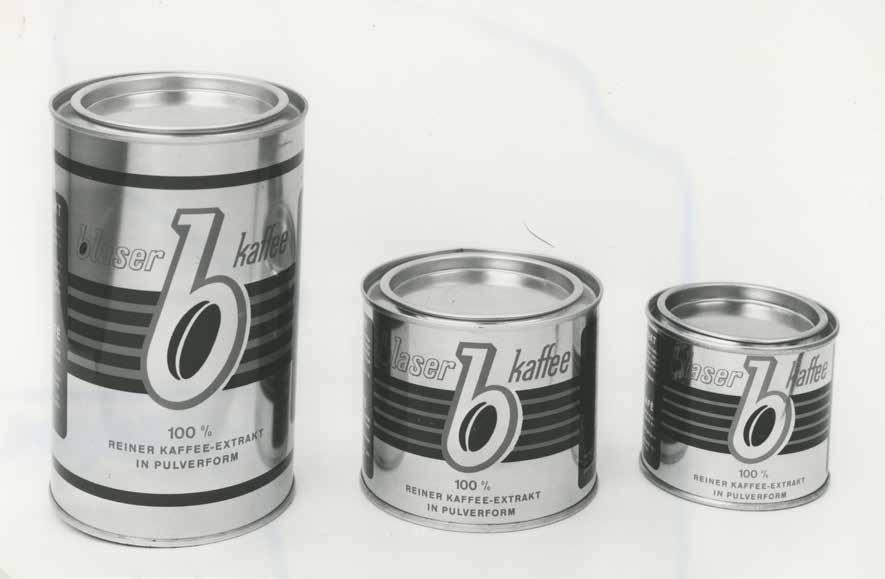
Blasercafé packaging in the 60s.
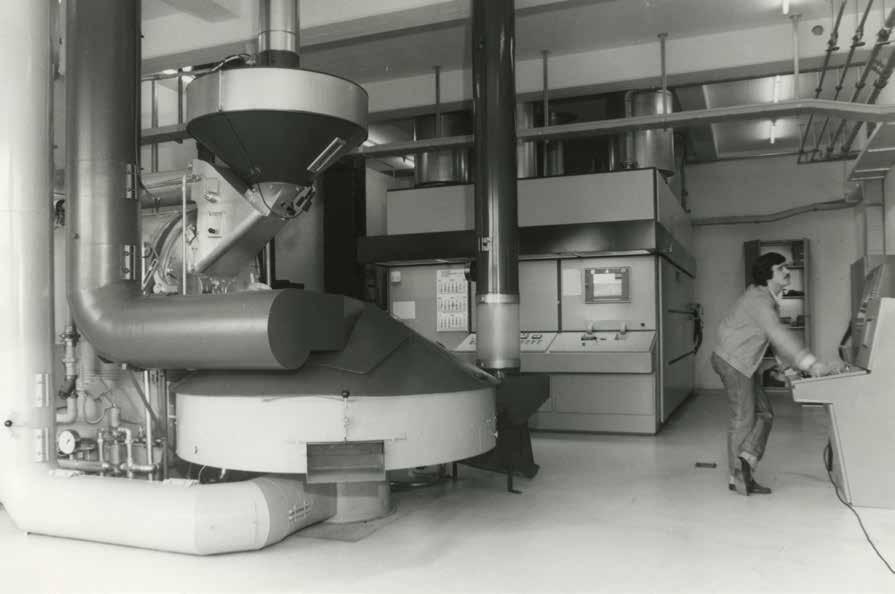
Roasting plant on Güterstrasse in Bern in the early 1980s.
1922 Entrepreneurial pioneer Walter Blaser (1st generation) from Bern and his Zurich-born wife Cécile open a small coffee trading business in Zurich. Walter Blaser buys his raw coffee directly in the countries of origin even at this early date.
1929 The young couple move their business to Effingerstrasse 25 in Bern.
1939 Tragedy strikes: founder Walter Blaser dies at the age of 49. Together with their 17-year-old son Walter (2nd generation), his wife Cécile successfully carries on the business despite the difficult economic climate and reservations on the part of the public authorities. Walter Blaser displays considerable entrepreneurial skill and successfully expands the green coffee and catering divisions after the war.
1953 Walter realises the potential of the raw coffee trade and supplies his first 5 tonnes to the Swiss armed forces. The foundations of Blaser Trading AG are laid.
1955 The first fully automatic, electronically controlled roaster in Switzerland is put into operation at Effingerstrasse 25.
1960 In the 1960s, Blasercafé opens a shop at Spitalgasse 4 in Bern, achieving a presence at a top-quality location.
1962 Walter's son Markus Blaser joins the company and starts a business apprenticeship; brother Rolf follows 10 years later (3rd generation). Markus later supports his father Walter on the management side, and they expand the hospitality and raw coffee divisions together. He also develops markets outside Switzerland with select partners.
1975 Purchase of a warehouse at Güterstrasse 4 in Bern. 1981 sees the construction of a new 7-storey building there, built by the prominent Bernese company Helfer Architekten. This provides not only accommodation for staff and production but also direct links to the railway lines and motorway.
1980 The Italian market is developed – it is still an important market today. A distribution network is also set up in England based in York.
1992 The existing limited partnership is split up and converted into two stock companies: Blaser Café AG for roasted coffee and Blaser Trading AG for the raw coffee business.
1996 From 1996, the 4th generation joins the family business. Michael and Bettina Blaser (Markus Blaser's son and daughter) start their business training. Marc Käppeli (the son of Therese Käppeli-Blaser, Markus Blaser's sister) also enters the company after completing a business degree.
1998 Together with leading Italian roasting houses, Blasercafé establishes the Caffè Speciali Certificati (CSC) organisation. The founders' shared goal is to promote the culture of superior, high-quality coffee. Blasercafé's Rosso e Nero blend bears the CSC label – the only espresso blend outside Italy to do so.
1998 Blasercafé plays an important role in the formation in London of the Speciality Coffee Association of Europe (SCAE), the European chapter of the SCA. Blasercafé is still an active member of SCA Switzerland to this day.
1998 Walter Blaser, father and grandfather, dies suddenly. Managing Director Markus Blaser takes over as Chairman of the Board of Directors, a role he still holds today.
1.4 Company history
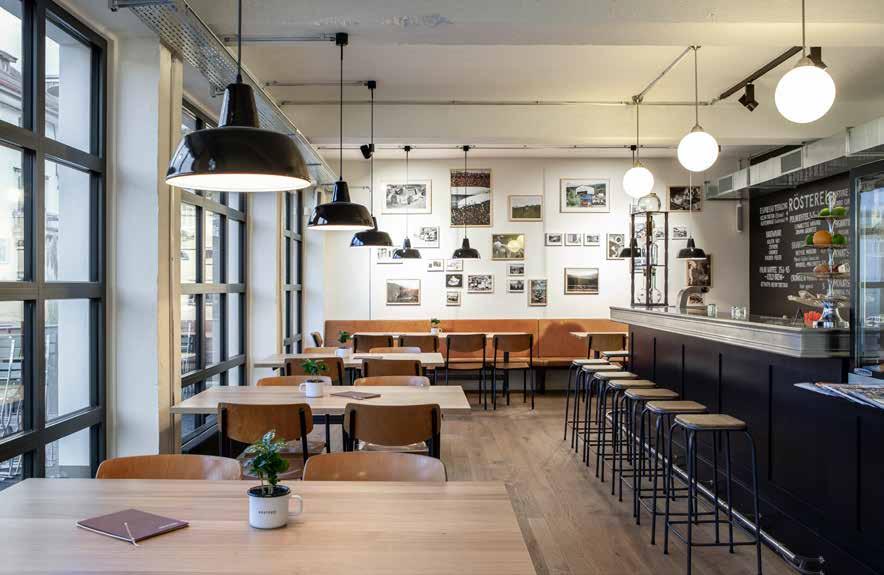
of the first
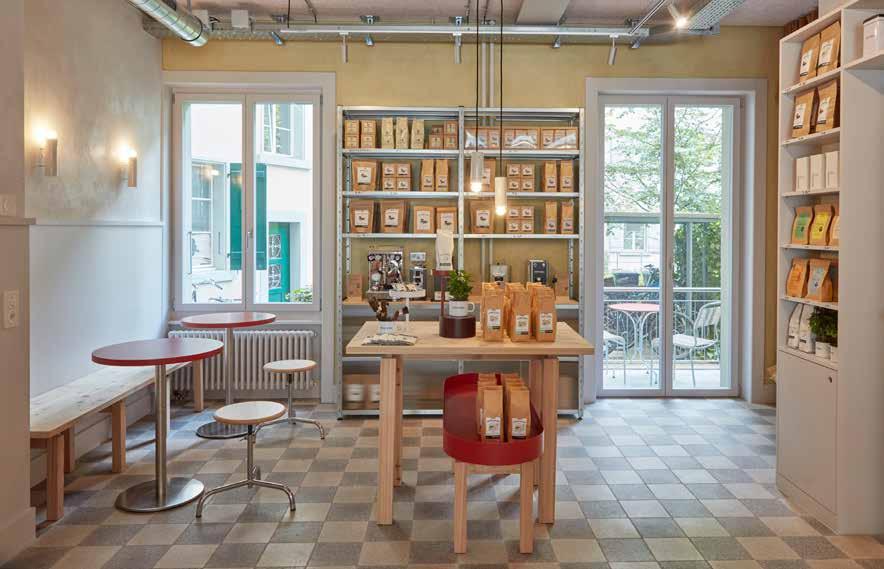
2002 Blasercafé opens one of the first coffee academies in Switzerland. The barista and sensory skills courses prove very popular. The SCA Coffee Skills Programme now also offers certified courses and the training premises are certified as an SCA Premier Training Campus.
2006 Marc Käppeli is head of Sales and Administration and becomes the operational Managing Director of Blaser Café AG. He is president of the SCAE from 2011 to 2013.
2014 The Rösterei Kaffee und Bar opens at Güterstrasse 6. Professional baristas prepare coffee specialities for the guests, who can watch the roasting masters at work. The attached shop not only supplies coffee, coffee makers and coffee grinders, but also barista equipment.
2016 Michael and Bettina Blaser become members of the Management Board. Together with Marc Käppeli, Stefano Zoratti and Christoph Lauper, they make up Blasercafé’s current top management team. They are also members of the Management Board of Blaser Trading, together with Sergio Prete, Dominik Bangerter, Michele Brandinu and Thomas Quinche.
2018 Blasercafé's Rösterei Kaffee und Bar and bakery company Bäckerei Reinhard launch Bern's new gourmet attraction for coffee of the finest barista quality and delicious cakes, pastries, etc., at the city's railway station.
2020 A new Rösterei Kaffee und Bar location opens at Gurtengasse 6, in the heart of Bern. Roast blends can be purchased from "zero waste" coffee silos in the sales outlet.
2021 The 5th generation joins the family company. Felice Blaser (son of Bettina Blaser) starts his commercial apprenticeship, followed by Larissa Blaser (granddaughter of Rolf Blaser) in 2023. Lorina Käppeli (daughter of Marc Käppeli) works as a barista in the Rösterei Kaffee und Bar during her studies.
2022 The anniversary year is launched with the Blasercafé tram, which runs on Bern's streets. An elegant spatial concept was realised at Güterstrasse 4 to mark the anniversary. A joint excursion was organised to celebrate with all employees.
2023 Redesign of the Blasercafé logo and packaging. Thanks to the latest developments in packaging technology, we can completely dispense with the use of aluminium in our packaging materials for the first time. This is an important step towards sustainability with consistent quality.
2024 Opening of another location of the Rösterei Kaffee und Bar in Berner Länggasse. Redesigning of homepage and relaunching of webshop. Commissioning of heat recovery system and photovoltaic system. The first sustainability strategy since the company was founded is currently being developed.
1.5 The Blaser family and its values
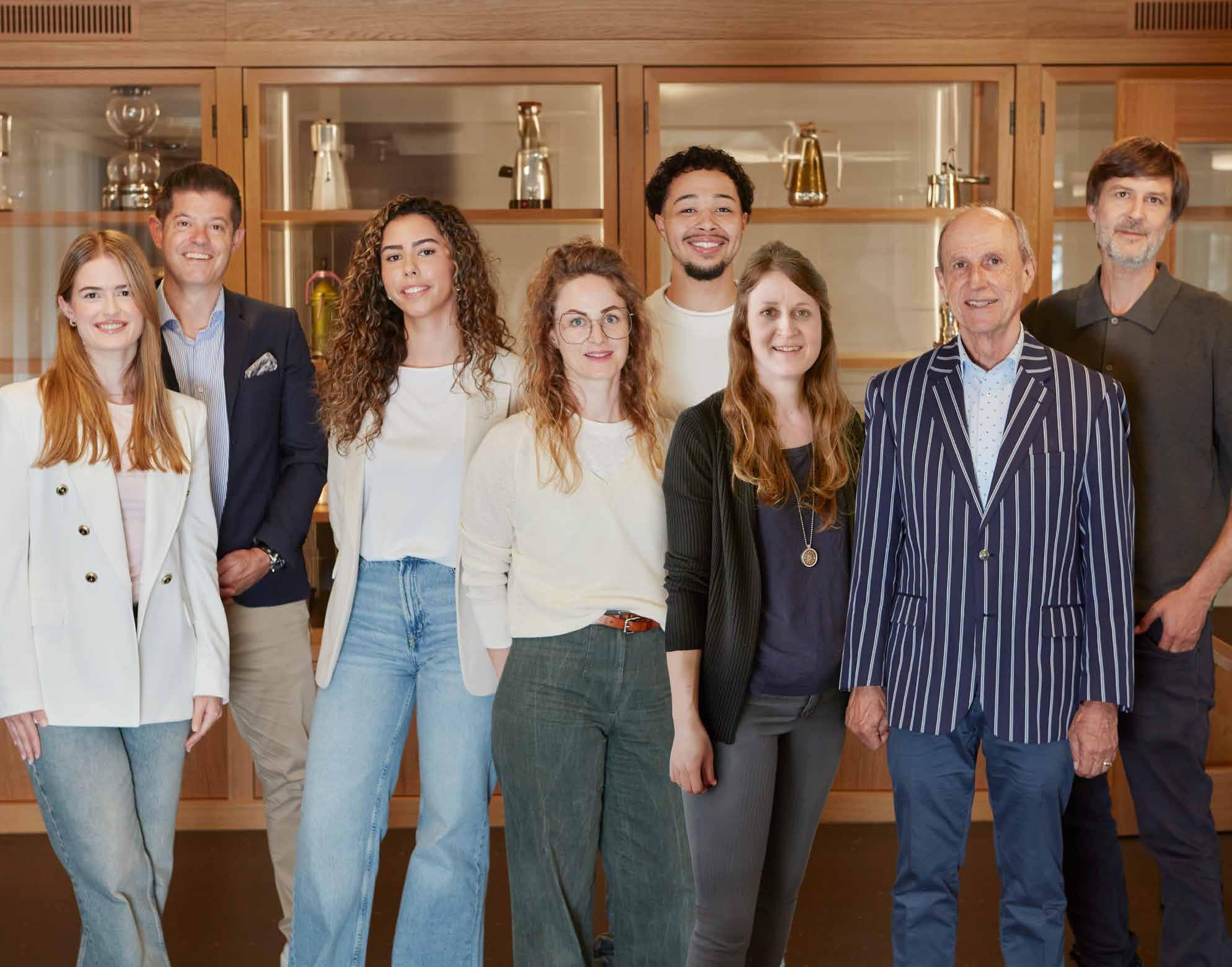
"Our love for coffee has a long tradition. Since its founding in 1922, Blasercafé has been entirely family run and is now in its 4th generation. We are the only coffee roasting company in Bern that has retained its independence over the years and remained loyal to the city of Bern as a production location. Bern is home to us. The green coffee imported by Blaser Trading from tropical and subtropical regions is roasted in Bern.
We aspire to act fairly and treat the resources required for coffee production with care.
We also fulfil our responsibility as an employer. Our company has 20 employees with over 20 years of service. The Blaser family is present in the company and seeks personal dialogue with all employees. "
Markus Blaser Chairman of the Board of Directors
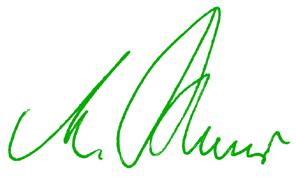
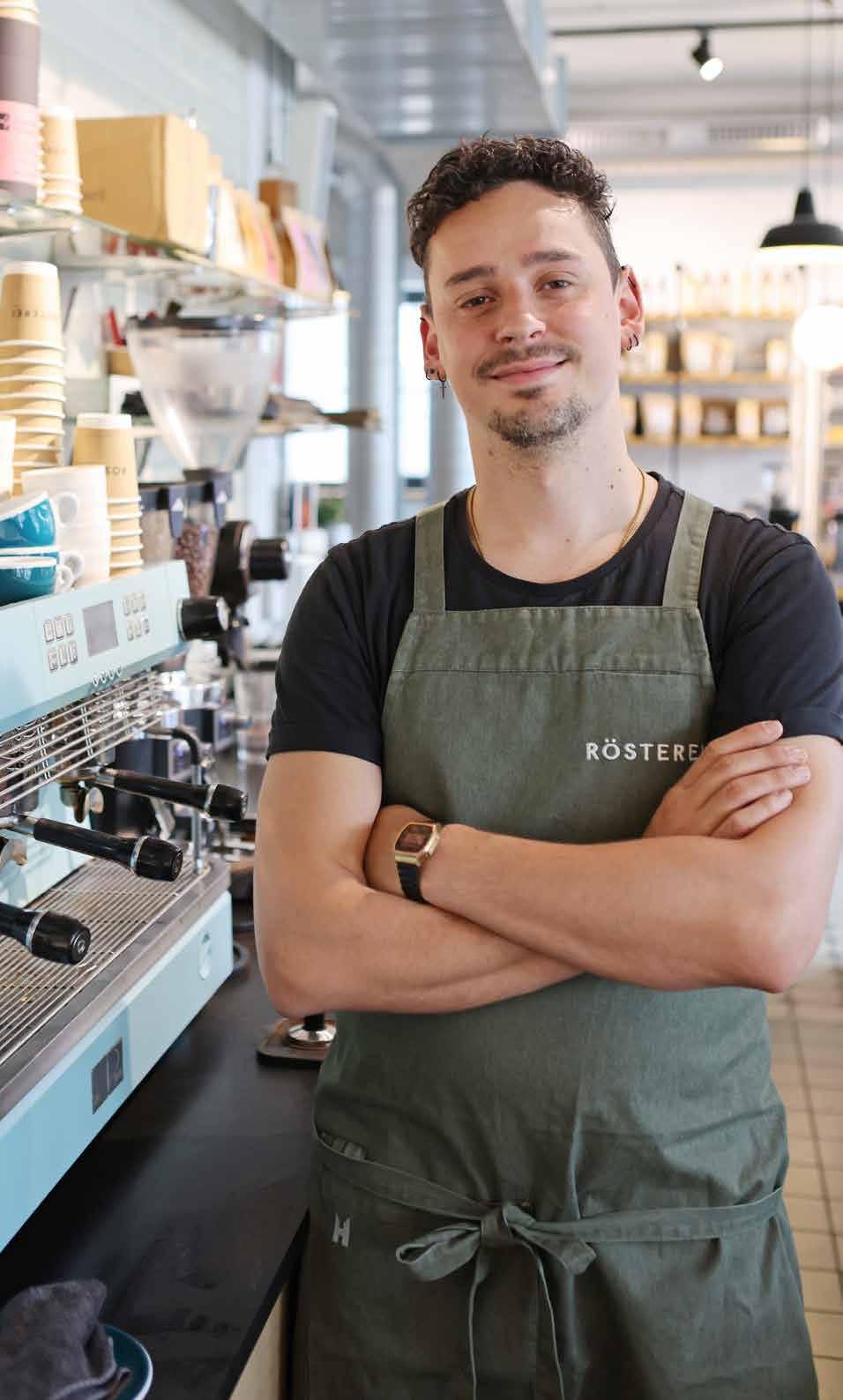
Apprentices
Part-time positions
Nationalities
Age structure
Years of service
Occupational fields
% 2
Switzerland / Czech Republic / Dom. Republic / France / Italy / Portugal / North / Macedonia / Sri Lanka / Turkey / Ukraine
16 - 25 19 employees 26 - 30 13 employees 31 - 40 25 employees 41 + 63 employees
0 - 5 64 employees
6 - 10 21 employees 11 - 20 15 employees 21 + 20 employees
Business economist / commercial employee / clerk / chauffeur / barista / sensory technician / quality manager / restaurateur / roaster / machine operator / packer / production manager / mechanic / ICT supporter / caretaker / field service employee / cleaning specialist / sustainability manager / green coffee trader / course instructor / food technologist / designer / warehouse worker
1.6 Blaser Group as an employer
Principles
Since its founding, the business practices of the Blaser Group have been based on integrity, honesty, fair business behaviour and compliance with all applicable laws. The members of the Board of Directors and Management Board and all employees support and live this commitment in their daily work.
The Blaser Group creates a favourable, open working culture so that employees are motivated and can identify with their work. Employees should be able to work for the company in the long term and play an active role in the further development of the company.
Code of Conduct
A Code of Conduct specifies and supports these endeavours by establishing certain non-negotiable minimum standards of conduct in key areas. The Code requires all employees to live up to the values and principles set out therein and, at the same time, signals responsible behaviour towards business partners and customers to the outside world.
Equal rights
The Blaser Group is committed to equal opportunities for all employees and takes a clear stance against discrimination, bullying and harassment in the workplace.
Whistleblowing / Ombudsman's office
The Blaser Group has set up an ombudsman's office to which employees can turn without fear of reprisals or other negative consequences.
Reintegration
The Blaser Group wants to give people who find themselves in a difficult personal and professional situation the chance to reintegrate into the primary labour market. We work together with local social organisations to this end.
Training company
Every year, two new apprentices start their apprenticeship as a commercial clerk at the Blaser Group. The apprentices are closely supervised on their three-year journey through the company and are allowed to help out early on. They familiarise themselves with all areas relevant to the company, enabling them to gain an important insight into many different activities and professional fields.
About the Code of Conduct.
2.1 Overview - Sustainability measures
Trade in certified green coffee (Rainforest Alliance, Fairtrade, organic, CSC)
A PV system covers the daily electricity requirements of the Rösterei Kaffee und Bar on Güterstrasse
Against food waste: Connection of all three locations of the Rösterei Kaffee und Bar to the Too Good To Go initiative
Heat recovery system on the roasting machine for sustainable energy generation
Growing range of organic and Fairtrade-certified roasted coffees
Orang Utan Coffee to support an orangutan conservation programme in Indonesia
Cooperation with local social facilities for reintegration in the primary labour market
Annual savings of 11,124 kg CO2 e (equivalent) thanks to shifting transport from road to rail
Support for the DOÑA LUCERO project for the economic empowerment of women coffee farmers in Guatemala
Deforestation analyses with the goal of sourcing green coffee from deforestation-free plantations
Coffee deliveries by bike courier in large parts of the city of Bern to reduce CO2 emissions
Terroir coffee line supported smaller coffee producers and co-operatives
Purchasing from Bernese producers for our Rösterei Kaffee und Bar venues
No aluminium capsules. We rely on the E.S.E. pod system. Pods compostable after use
The company has always attached great importance to maintaining long-standing relationships in the countries of origin
2.2 Principles and strategy
Coffee is a natural product with a long journey along the value chain – from the tropical growing region to the cup. Blaser Trading AG sources green coffee from various countries around the world and processes some of it at the Blaser Café AG roasting facility in Bern. Our business activities along the entire coffee value chain have a major impact on people and the environment. This gives us a special responsibility, which we fulfil with great commitment.
In order to live up to this responsibility, we have developed a sustainability strategy for the first time in the company's history. A key instrument for realising our sustainability goals is the active fulfilment of our corporate due diligence obligations. The focus here is on the systematic review of risks along the supply chain with regard to environmental, social and governance (ESG) criteria. Our risk management system is therefore being continuously developed. We are required to establish transparent processes in order to recognise risks at an early stage, assess them in a structured manner and take effective measures to minimise them.
The challenges that we – and the entire coffee industry – face are diverse and complex. It would be unrealistic to expect that all problems can be solved within a short period of time. We are committed to a continuous improvement process. For us, due diligence does not mean perfection, but rather credible action that is willing to learn – together with our suppliers, customers and the people affected along the value chain.
In the course of the global debate on the human rights and environmental impact of business activities, a number of legal regulations have been introduced in recent years. They aim to better protect the environment and human rights along international supply chains. We, as the Blaser Group, are also affected by this – directly, for example, by the EU Deforestation Regulation (EUDR), the Swiss counter-proposal to the Responsible Business Initiative (VSoTr) and the planned EU regulation against products made with forced labour (EUFLR). Other regulations – such as the German Supply Chain Duty of Care Act (LkSG), the EU Sustainability Reporting Directive (CSRD) and the planned EU Supply Chain Directive (CS3D) – affect us indirectly.
We see this dynamic as an opportunity: It encourages us to further develop our principles and align our strategy with a future that is fit for our grandchildren – with a clear compass, family commitment and the goal of making a difference together.
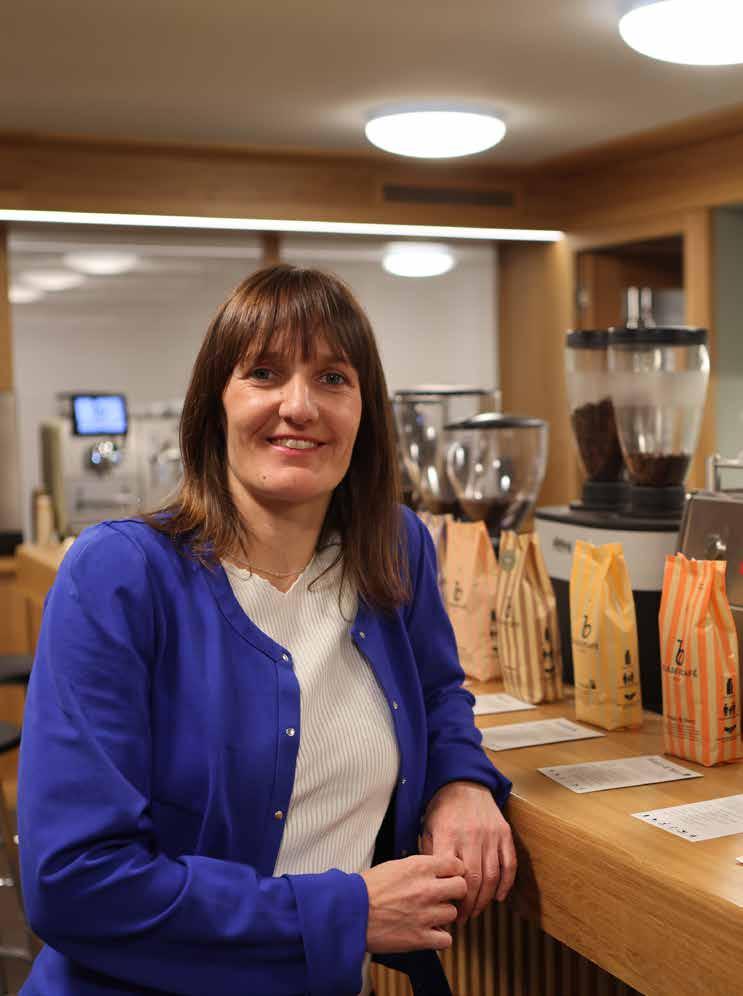
"To reduce our carbon footprint effectively, we need to start with green coffee purchasing."
2.2 Principles and strategy
Setting the strategic course
In 2024, the Blaser Group's executive team and management board held strategic discussions on the topic of sustainability. A particular focus was placed on analysing our carbon footprint. We have teamed up with external experts to gain a better understanding of our carbon footprint and relevant influencing factors along the value chain.
Together with the Bern-based company Zero Hero, we conducted two in-depth workshops in which we systematically analysed our emissions. CO₂ emissions are categorised into three so-called scopes for better classification:
• Scope 1 comprises direct emissions that our companies cause themselves – for example by operating their own vehicles.
• Scope 2 includes indirect emissions from purchased energy such as electricity or district heating.
• Scope 3 refers to all other indirect emissions that occur along the entire value chain – e.g. through the purchase of green coffee, transport or business trips.
Not surprisingly: The greatest lever for reducing emissions for the Blaser Group lies in Scope 3 – particularly in the purchase of green coffee. A major driver of these emissions is, for example, the use of mineral fertilisers in coffee cultivation. The way in which coffee is grown therefore has a decisive influence on our carbon footprint. This realisation drives us to work with our green coffee suppliers to promote more sustainable cultivation methods, thereby effectively reducing our ecological footprint. Even though the reduction of Scope 3 emissions is clearly the greatest lever for climate protection, we will simultaneously reduce our Scope 1 & 2 emissions in a targeted manner. These emissions are more within our direct sphere of influence, making it easier for us to implement decisive measures.
Scope 1, 2 & 3
Scope 1 (4%): Fossil fuels such as roasting gas or petrol for company fleet
Scope 2 (2%): Purchased energy such as electricity or district heating
Scope 3 (94%): Green coffee cultivation, purchasing and transport
The first sustainability strategy in the company history of the Blaser Group was developed from the analysis of our carbon footprint and further discussions on sustainability-relevant aspects in general. Our commitment is comprehensive: We endeavour to incorporate ecological, social and economic aspects of sustainability equally into our considerations and actions.
2.2 Principles and strategy
Our sustainability goals
We have set four goals for ourselves. The first, institutional objective is a transverse objective: The more firmly sustainability is anchored as an integral part of our business activities, the more effectively and cohesively we can implement our thematic sustainability goals. The three thematic goals are based on the key dimensions of sustainability: environment (E), social (S) and governance (G).
Institutional
Environment (E)
We are reducing our negative impact on the environment and ecosystems:
• 50% reduction in Scope 1 & 2 emissions by 2030 for the entire Blaser Group
• 90% reduction in Scope 1-3 emissions by 2045 for Blaser Café
• 90% reduction in Scope 1-3 emissions by 2050 for Blaser Trading
Sustainability is anchored in our operations and is an integral part of our business activities. All employees are familiar with the sustainability strategy. Sustainability goals are integrated into the annual corporate goals. A solid human rights and environmental due diligence system is in place. A complaint mechanism is available. Sustainability criteria are systematically incorporated into the selection of suppliers.
Social (S)
We are committed to improving the living conditions of people along the coffee value chain:
• By 2030: 50% of all roasted coffee sold (Blaser Café AG) and 35% of all green coffee sold (Blaser Trading AG) is responsibly sourced
• The issue of child labour is being actively addressed with at least 5 suppliers
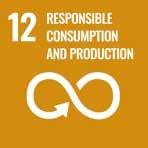
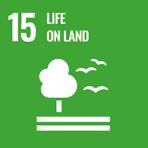
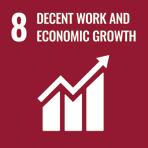
Governance (G)
We promote ethical business behaviour among the players involved along the coffee value chain:
• Zero tolerance for corruption, bribery & fraud, including money laundering
• 95% of green coffee suppliers will have undergone a compliance risk assessment by 2030
• We will be able to trace 70% of our purchases back to the producer by 2030
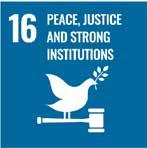
2.2 Principles and strategy
Our Blaser approach
The challenges along the coffee supply chain are complex – our answers are based on partnership and are impact-orientated. Our approach is based on four central pillars:
1. Strengthening local suppliers
We rely on close cooperation with local players and their empowerment – in green coffee purchasing, roasted coffee production and catering in Switzerland. Long-standing relationships with local suppliers, cooperatives and producers. We have a broad network of coffee suppliers that we have built up over more than 100 years. These long-standing relationships form the foundation of our business.
2. Promoting cooperation
The challenges facing the industry cannot be solved single-handedly. Issues such as child labour, fair working conditions and loss of biodiversity require cross-sector cooperation. Particularly as a smaller player, we believe in the power of joint initiatives and want to play an active, creative role. As the Blaser Group, we are therefore involved in various associations and platforms, such as the Swiss Sustainable Coffee Platform (SSCP), the Swiss Coffee and Trading Association (SCTA), the Swiss Roasters Guild (SRG), Procafé, the German Coffee Association (DKV) and the European Coffee Federation (ECF), in order to jointly develop viable industry solutions. We also aim to have a catalytic effect by doing so.
3. Transparency
We stand for transparent communication – both internally and externally. We reject greenwashing or exaggerated promises. We are aware of the major challenges we face and take them seriously. Our goal is to tackle them honestly, comprehensibly and in a solutionorientated manner – even if not everything can be resolved immediately.
4. Effective action
We not only want to be active; rather, we want to make an impact. Our actions are geared towards impact and relevance, not just visible output. Whether in the realisation of projects or in day-to-day business activities – we deploy our resources in a targeted manner where they have the greatest possible leverage effect.
2.2 Principles and strategy
Internal working groups
We are currently in the process of translating overall sustainability goals into concrete, realisable measures. In order to make this process as effective as possible and to anchor sustainability even more firmly in the company, we actively involve our employees. Three internal working groups have been established for this purpose.
The first working group deals with green coffee purchasing at Blaser Trading AG. The aim is to develop ways of assigning greater weight to sustainability aspects in the procurement process. The emphasis here is on closer cooperation with our suppliers.
The second working group focuses on roasted products and the development of corresponding sales markets – because sustainable purchasing must go hand in hand with corresponding demand. It's all about dealing with price-sensitive customer segments: It is important to better understand their needs while at the same time developing strategies to specifically promote the willingness to buy more sustainable products.
The third working group is dedicated to internal sustainability and all other goods purchases outside of green coffee. Specifically, measures are being discussed on how we can further reduce our energy consumption and waste, and how sustainability criteria can be taken into account to a greater extend when purchasing goods. In addition, the group develops creative approaches to make sustainability a tangible, enjoyable part of everyday working life.
Declaration of principle
The Supplier Code of Conduct is a key document for green coffee purchasing as our suppliers also have a significant influence on our sustainability performance. We have formulated our expectations for our suppliers and business partners in the Supplier Code of Conduct. The Supplier Code of Conduct is based on the most important international conventions and basic principles relating to human rights, the environment and governance. The code defines binding requirements for the legally compliant and ethical behaviour that we place on our suppliers. Specifically, the following areas are addressedin the Supplier Code of Conduct:
• Rights at work, such as health and safety
• Regulated working hours, no discrimination, appropriate accommodation
• Children's rights
• Environmental protection
• Corporate integrity, no corruption
To the Supplier Code of Conduct.
2.3 Risk analysis
Knowing the environmental, social and governance risks of our business activities worldwide is a key aspect of fulfilling our duty of care in the best possible way. Our risk analysis consists of two important partial steps.
The first step is to create a comprehensive picture of potential risks along our entire value chain. We have analysed human rights and environmental risks from the perspective of those potentially affected. In a second step, the identified risks are assessed and the most significant risks for our company are determined.
Our value chain can be broken down into the following process steps:
2.3 Risk analysis
Identification of risks
The risk analyses of the German Coffee Association (DKV) form the basis for the identification of potential risks. The DKV has commissioned Global Risk Assessment Services (GRAS) to carry out a country and coffee-specific risk analysis for 2024 for 18 coffee-growing countries. We consider the DKV's risk analysis to be methodologically very sound. In addition to consulting specialist literature, the analysis also included an assessment of the available recognised country indices and statistics. We have compared and supplemented the findings of these DKV risk analyses with our own experience.
The greatest human rights and environmental risks in our business areas occur in procurement in the coffee-growing countries and, to a lesser extent, in our own operations and the downstream value chain. We have therefore focussed on the risks in the various countries of coffee origin. Those potentially affected by the procurement of green coffee are small farmers, plantation workers, workers at the Beneficios (green coffee processing stations), lorry drivers, residents living near coffee plantations and, of course, the environment and ecosystems.
Key topics (Salient issues)
The following considerations were relevant in determining the key issues for us:
• Severity of the impact on humans and the environment (extent, scope, irreversibility)
• Weighting of topics depending on the economic importance of a country for our procurement activities
• Compliance-relevant topics (child labour and deforestation)
The following box shows the key issues for us.
Human rights issues
• Compensation
• Child labour
• Forced labour and modern slavery
• Health protection and safety
Environmental topics
• Land use change (deforestation)
• Substances of concern
• Environmental pollution, especially water and soil pollution
• CO2 emissions
2.4 Reporting procedure
We are currently examining various options as a mechanism for further recognising risks in our value chains.
The central function of the reporting procedure must be that any person or stakeholder along our value chain can anonymously report substantiated concerns about human rights violations or negative environmental impacts. It should be possible to report a complaint easily, preferably in the local language. It is our corporate duty to investigate every reported complaint in an appropriate manner.
As we often work with the same players as other green coffee buyers in the countries of origin, we are continuing to examine the extent to which we could join an industry solution. We expect a joint system supported by various coffee companies to be more effective.
It is, however, already possible to report complaints via our homepage.
To the online reporting form
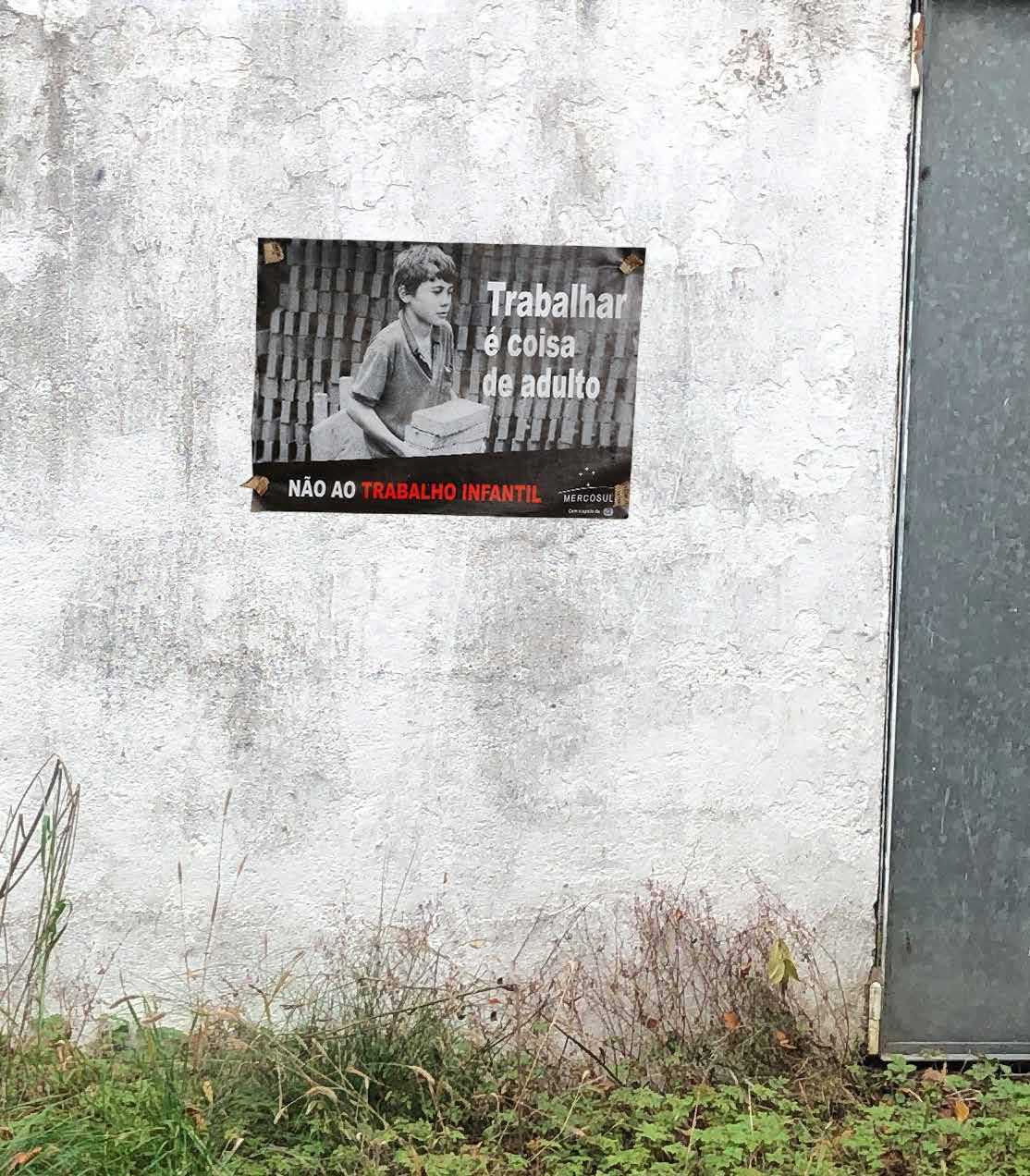
3.1
Facts about the green coffee trade
13,140 t of certified coffee sold
590 t of CSC-certified coffee sold.
9,788 t of certified Rainforest Alliance coffee sold
1,290 t of Fairtrade-certified coffee sold
2,062 t of certified organic coffee sold
1,138 t of certified organic & Fairtrade coffee sold (double certification)
Shares of individual coffee-producing countries in the Blaser Group's total green coffee purchases in 2024
3.2 Challenges in the countries of origin
Volatile green coffee market
The 2024 financial year presented us with extraordinary challenges. The coffee market was characterised by extraordinary volatility and high prices, which put a major strain on our entire supply chain.
A key factor was the high price level – for both Arabica and Robusta. There are many reasons for this: Climatic changes and the resulting crop failures had a significant impact on production volumes in key countries of origin. At the same time, global demand continued to grow, partly due to new consumer markets such as China, where coffee is becoming increasingly important as a lifestyle product.
These developments show how important it is to make our partnerships along the supply chain resilient and fit for the future – both in terms of profitability and sustainability. At the same time, it is also becoming clear how difficult it is to combine economic efficiency in a way that is viable for the future.
3.2 Challenges in the countries of origin
Effects on humans
On the one hand, our procurement activities enable us to support a large number of coffee farmers and companies that generate their income from working with coffee, thereby improving local conditions. Coffee cultivation is the main source of income for around 12.5 million farmers worldwide. The majority of coffee farmers are small farmers with less than 5 hectares of land.
On the other hand, there is a risk of social grievances arising along our coffee value chain. Many live below the internationally defined poverty level (Report of the International Coffee Organisation, 2024). We see the greatest human rights risks in the disregard of basic rights with regard to working conditions on coffee plantations and in processing plants. www.icocoffee.org
The way in which coffee is grown, harvested, processed, transported and stored varies greatly from country to country and region to region. Consequently, the impact on people and the environment varies from country to country.
Blaser Trading purchased the largest quantities of green coffee in 2024 from Brazil, Indonesia, India, Vietnam, Colombia and East Africa (Ethiopia, Uganda, Tanzania and Kenya).
The table below provides an overview of the key human rights issues for us in green coffee procurement and an indication of how serious we consider the various risks per country to be.
These topics are generally relevant for coffee procurement. We are aware that other human rights issues such as gender equality, freedom of association and adequate housing, including water and sanitation facilities, also occur in the coffee value chain.
3.2 Challenges in the countries of origin
Compensation
Reasonable prices and fair wages are the main risks in the procurement of green coffee. According to data from the International Labour Organization (ILO), average monthly earnings in the agricultural sector are below the estimated minimum wage in almost all coffee growing countries. Green coffee prices are dependent on the stock market and our influence is limited. To minimise this risk, we maintain direct, long-term partnerships with farmers' cooperatives and producers in addition to purchasing certified coffees.
Child labour
According to the ILO, child labour is work that deprives children of their childhood, their potential and their dignity, and that is harmful to their physical and mental development.
The root causes of child labour are often economic poverty, a lack of basic services and family involvement in coffee-related work. Low incomes and wages can mean that households find it difficult to provide their children with an education or that they are dependent on their children's co-operation.
According to the DKV risk analysis, Nicaragua and Papua New Guinea are the coffee-growing countries with the highest risk level for child labour. Most countries have a low or moderate risk. As a region, East Africa is most affected by child labour. In 2024, we sourced around 8% of our coffee from East Africa (Ethiopia, Uganda, Tanzania, Kenya and Congo). Nicaragua and Papua New Guinea together account for less than 2% of our purchases.
Even though we make the majority of our purchases in countries where the problem of child labour is less present, a central part of our due diligence will involve implementing further measures against child labour that are appropriate and effective for our business model.
Forced labour and "modern slavery"
Inadequate working conditions are a particular problem for informal and seasonal workers without employment contracts and job security. This often affects migrant workers who only work on coffee plantations at harvest time.
Informality weakens their position, so that they have no access to social security. Among the most important countries for Blaser Trading, Brazil and Indonesia are particularly affected. In Brazil, slavery-like labour conditions on coffee plantations are a problem that is being tackled by the public sector. The Brazilian Ministry of Labour regularly publishes a blacklist of companies that are associated with slave-like working conditions.
Thanks to our long-standing collaboration with our partner Wolthers Associates in Santos, on-site visits and regular checks against the Brazilian government's "blacklist", Blaser Trading is able to minimise this risk.
3.2 Challenges in the countries of origin
Health protection and safety
Workers on coffee plantations, in processing companies or in the transport sector do not always have the necessary safety precautions, such as protective equipment when using agrochemicals or regulated working hours.
A lack of health and safety at the workplace can have a direct negative impact on employees. Ethiopia, India, Indonesia, Tanzania, Uganda, Vietnam and Laos have the highest risk of all coffee-growing countries. The country with the lowest risk level is Brazil. In general, the risk level for South and Central American countries is relatively low. Our focus in terms of health and safety is therefore on Asia and Africa.
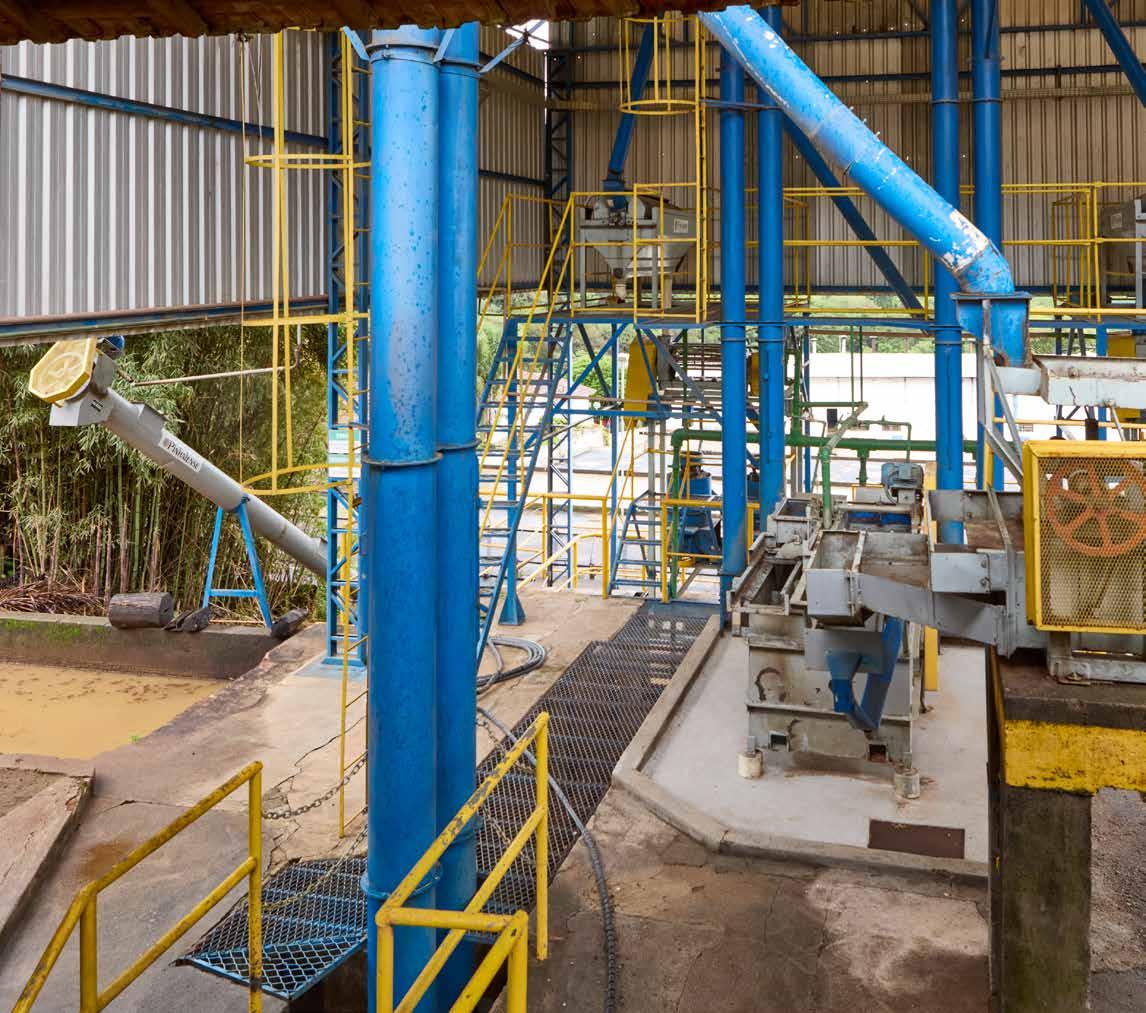
3.2 Challenges in the countries of origin
Risk levels of child labour in the main coffee-growing countries
The risk assessment is based on an analysis of the German Coffee Association (carried out in 2024)
Mexico moderate
Guatemala moderate
El Salvador moderate
Colombia low
Peru moderate
Honduras moderate
Nicaragua high
Uganda significant
Brazil moderate
Ethiopia significant
Kenya moderate
Tanzania significant
India moderate
Vietnam moderate
Indonesia moderate
3.2 Challenges in the countries of origin
CO2 emissions, deforestation & biodiversity
CO2 emissions are generated along the entire coffee value chain. Coffee cultivation produces by far the most CO2 emissions. The main drivers are the use of synthetic nitrogen fertilisers, inadequate wastewater management and possible deforestation (Brounen 2019). The conversion of forests and intact ecosystems into coffee-growing areas not only causes large amounts of CO2 emissions but also contributes significantly to biodiversity loss. We are aware of this problem. Thanks to the long-standing partnership with Wolthers Assosciates, there is close cooperation in Brazil with producers that increasingly rely on regenerative approaches to coffee cultivation. The use of organic instead of synthetic fertilisers greatly reduces CO2 emissions. The soil is enriched, which has a positive effect on microorganisms and allows the soil to absorb more CO2 .
Water and soil pollution
Around 140 litres of water are used to make one cup of coffee. Water is needed both for growing and processing the green coffee. The risk of water contamination is increased if the coffee is wet-processed or fermented. The DKV risk analysis indicates that the cultivation of coffee in the vast majority of countries involves the significant use of legal and, in some cases, illegal agrochemicals. These substances have harmful effects on the environment and human health.
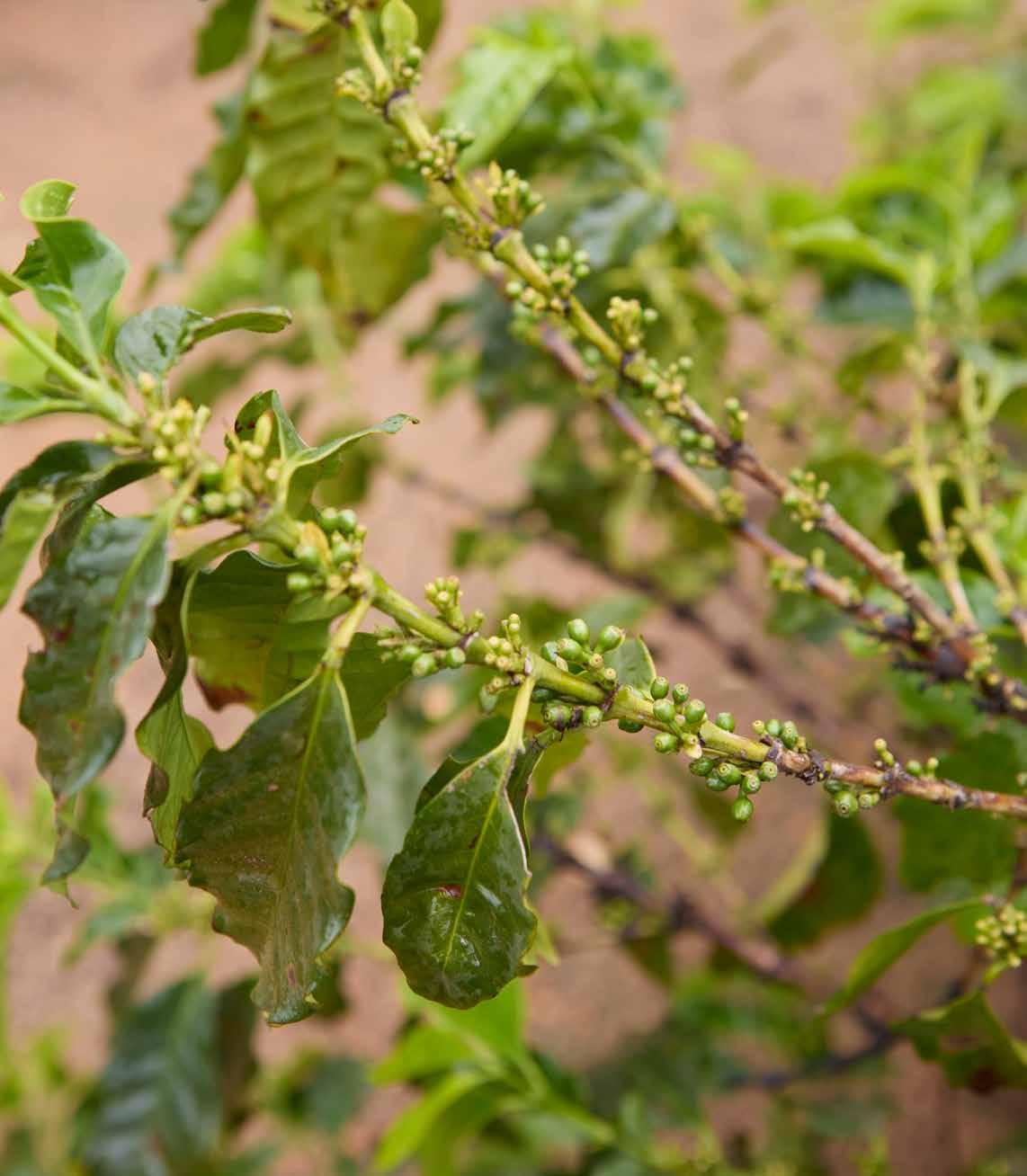
3.2 Challenges in the countries of origin
About the EUDR
The EUDR (EU Deforestation Regulation) is a European regulation on deforestation-free products. The goal of this regulation is to stop deforestation through the expansion of agricultural land. Coffee is one of the seven raw materials covered by the regulation. From 30 December 2025, all coffee sold in the EU must be EUDR-compliant.
How we are preparing ourselves
The EUDR has already kept us very busy in 2024. The regulation was originally due to come into force at the end of 2024, but there was a great deal of uncertainty surrounding its introduction. It was not until 23 December 2024 that the postponement of one year was finally officially published in the European Official Journal. This long phase of legal uncertainty was a major challenge for us as a trading company.
At the time of publication of this sustainability report, it is currently assumed that the regulation will become effective on 30 December 2025. Blaser Trading ensures that from then on we will only sell EUDR-compliant coffee to our customers in the EU. On request and subject to availability, we are also happy to serve customers in Switzerland and outside the EU.

Update on the status of EUDR.
Deforestation analyses
Blaser Trading carries out deforestation analyses with the help of the Enveritas Deforestation Detection System. This enables us to identify areas in each country where forest has been converted to coffee plantations since the end of 2020. The production locations of the coffee purchased by Blaser Trading are systematically analysed using this system.
Risk assessment
As part of our corporate due diligence, we regularly assess the environmental, social and governance risks along our supply chain. Measures to minimise potential risks, including the risk of deforestation and non-compliance with human rights, are defined accordingly.
Co-operation
Co-operation with coffee producers, exporters and other interest groups in the country of origin is important to us. When cases of deforestation become known, we investigate the matter carefully and work together to find the best possible support measures.
3.3 The origin of our measures
Blaser Trading often belongs to the category of small customers for producers and suppliers in the countries of origin. In addition, we have no branch outside Switzerland and no coffee plantations of our own. Accordingly, our ability to exert influence is limited depending on the human rights or environmental issue. It is therefore crucial for us to make a strategically careful selection of effective measures in order to minimise the most significant risks.
In 2024, Blaser Trading AG purchased green coffee from 25 different countries from over 100 suppliers and cooperatives. Our green coffee range extends from classic coffees in medium and premium qualities to speciality coffees including the Rainforest Alliance (RFA)-, organic- and Fairtrade-certified coffees.
Sale of certified coffees
By selling certified coffee, we can significantly reduce risks associated with human rights, environmental and governance along the value chain. Certification systems such as those of the Rainforest Alliance (RFA), Fairtrade or organic have standards that clearly define social, environmental and corporate governance requirements for every player along the value chain. The traceability of the coffee and support measures for local producers are guaranteed. The annual independent auditscarried out by accredited certification organisations - ensure that we and our suppliers comply with the prescribed standards of the respective certification system.
Sale of certified green coffees in 2024
Total 13,140 t
Fairtrade
Fairtrade and organic (double certification)
Rainforest Alliance
Comparative value in 2023
3.3 The origin of our measures
Max Havelaar Fairtrade coffee
In 2024, we sold nearly 1,300 tonnes of Fairtrade-certified coffee. The label stands for coffee that is traded fairly and produced according to comprehensive social and ecological criteria. This includes long-term trading relationships, a minimum price and a Fairtrade premium. The Fairtrade premiums are used by the cooperatives to implement various projects that support coffee farmers in a wide range of areas, such as education, health and more environmentally friendly cultivation. Thanks to fair trade conditions, farmers and workers can invest in a sustainable future. The Blaser Group has been selling and roasting Fairtrade-certified coffees for many years.
Organically grown coffees
In 2024, we sold over 2,000 tonnes of organically grown coffee. No synthetic chemical pesticides or fertilisers are used in organic coffee cultivation. Possible negative effects on the environment, and also on people, are thereby greatly reduced. The carbon footprint of organic coffee is significantly better than that of conventional coffee.
Rainforest Alliance
In 2024, we sold over 9,700 tonnes of RFA-certified coffee. By far the largest proportion comes from Brazil, followed by India, Honduras, Guatemala and Vietnam. The "RFA 2020 Certification Standard" is divided into comprehensive requirements for a product, both for the participants in the supply chain and for participants who are active at the farm level.
In addition to ecologically and socially sustainable cultivation conditions, the primary goal is to ensure responsible business practices throughout the entire supply chain. As a buyer of RFA-certified coffee, we pay the producers a so-called "sustainability differential" and "sustainability investment". This mechanism is intended to ensure more reasonable coffee prices. The following chart provides information about our RFA-certified green coffee suppliers:
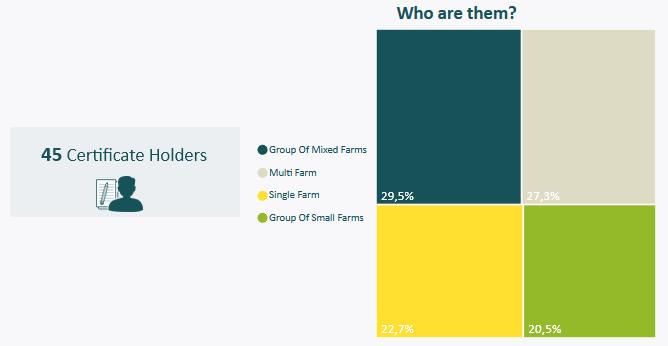
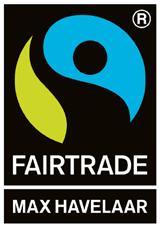
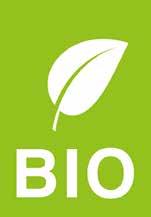
3.3 The origin of our measures
Terroir coffee for the highest quality expectations
We also buy selected speciality coffees for the Blasercafé Terroir line for connoisseurs with high traceability and quality standards. These coffees can be traced back to the plantation, in some cases even to the cooperative. This coffee derives a significant part of its character from its origin. The soil and climatic conditions shape its flavour, acidities and therefore its overall profile. It is the terroir (the environmental factors that affect a crop's observable characteristics) that gives the coffee its complexity. In 2024, we were able to sell 1.9 tonnes of terroir coffee.
In the future, EUDR-compliant coffee will also meet this requirement, thereby greatly expanding our range of traceable coffees.
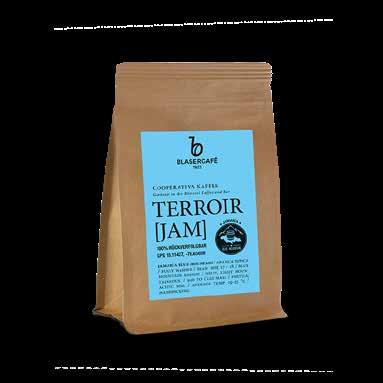
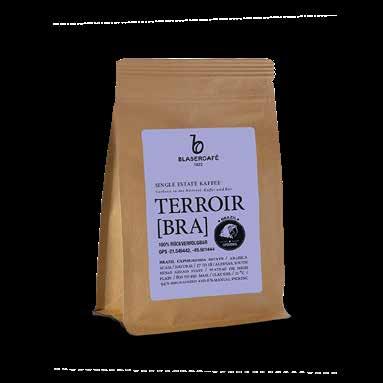
About our terroir coffees.
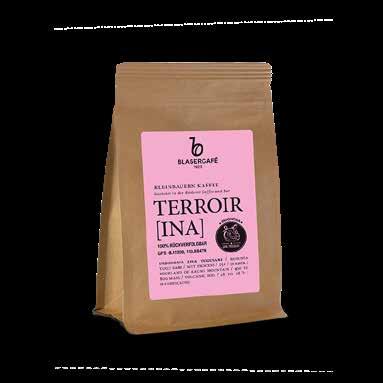
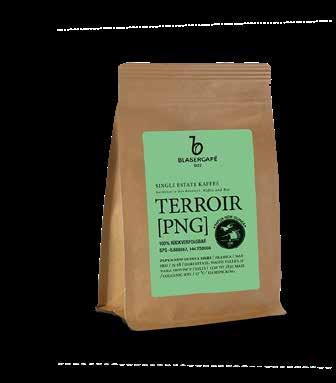
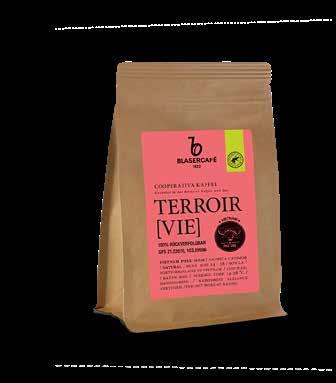
1.9 tonnes of terroir coffee sold
Terroir Indonesia Sumatra Orang Utan
Small farmers in the Gayo highlands of Aceh in the north of Sumatra cultivate coffee gardens according to the Orang Utan standard. Care is taken to ensure that the coffee is grown organically without the use of agrochemicals. This protects the rainforest and its animals and plants. The coffee farmers receive a premium per kilo of green coffee sold. A further premium supports the Sumatran Orang Utan Protection Programme, which works with the Indonesian government to protect Sumatran orangutans and the rainforest. In 2024, we were able to sell 407 kilos of this coffee.

Indonesia Sumatra Orang Utan

3.3 The origin of our measures
DOÑA LUCERO project by CSC* –Maya Women's Power Coffee
The Italian non-profit organisation amka and the Caffè Speciali Certificati - CSC label are working together to support the socially responsible Doña Lucero project in Guatemala. 80 Guatemalan coffee producers are involved in the project. The Doña Lucero project was launched in 2020 in north-west Guatemala, where coffee cultivation stretches for many kilometres thanks to fertile soils and favourable climatic conditions. The female farmers are often poor and dependent on selling their harvest immediately.
As part of the project, the women were able to further develop their production and trading capacities. Targeted training courses ranged from questions about coffee production to promoting the role of women, from the distribution of agricultural materials and products to technical support in improving cultivation techniques and the coffee harvest.
Experts from CSC had confirmed the high quality of the harvest. The project participants at Doña Lucero received a considerable bonus, which corresponded to an increase in income of almost 50%. This shows that efforts to do a good job are recognised and rewarded. This is an incentive for continuing on the path we have chosen.
Blasercafé is the only non-Italian roasting plant to be a member of the CSC. We buy some of the green coffee from this project and use it for the "Maya" blend launched exclusively for this project.
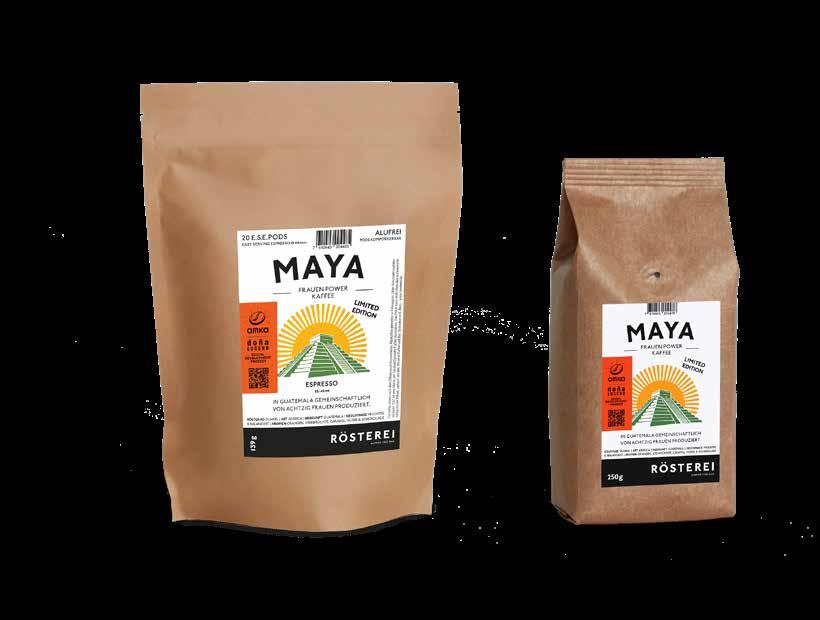
*CSC Caffè Speciali Certificati
In 2007, we were the first Swiss company to be accepted into the Italian organisation Caffè Speciali Certificati (CSC) with its extremely strict quality criteria. The Rosso & Nero espresso blend sold by Blasercafé is popular, fulfils all the criteria and proudly bears the CSC label. The blend is characterised by a perfectly balanced flavour.
3.3 The origin of our measures
Relationships with suppliers
The Blaser Group has no subsidiaries outside Switzerland and no coffee plantations of its own. However, since its founding by coffee pioneer Walter Blaser in 1922, the company has maintained long-standing partnerships with cooperatives and coffee farms in almost all countries of coffee origin. We attach great importance to fair trade relations with our business partners. We procure a large proportion of our green coffee directly from producers and cooperatives. For example, there is a long-standing partnership with the two cooperatives Minasul in Brazil and La Florida in Peru. We were able to support both cooperatives significantly in building up their export business. Our coffee traders visit various producers and suppliers every year to gain an impression of the coffee plants, the cultivation and processing methods, and the working conditions on site. We focus on long-term business relationships, which play a key role in minimising our sustainability risks.
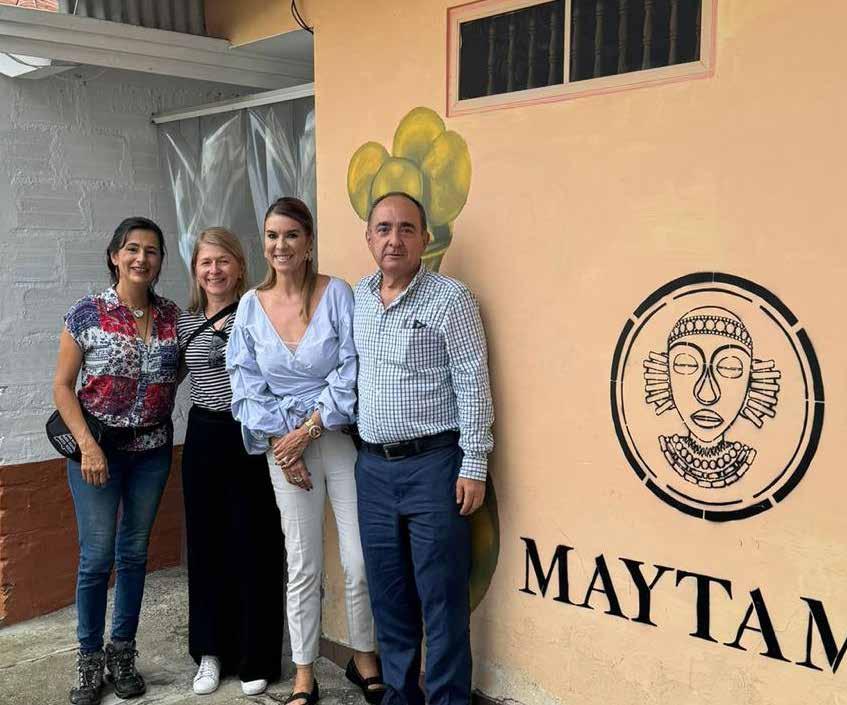
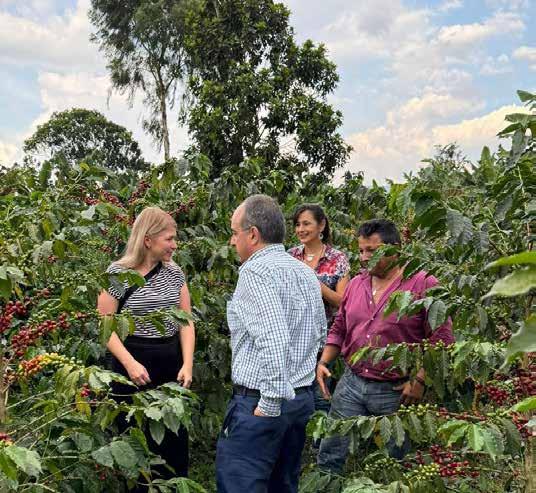
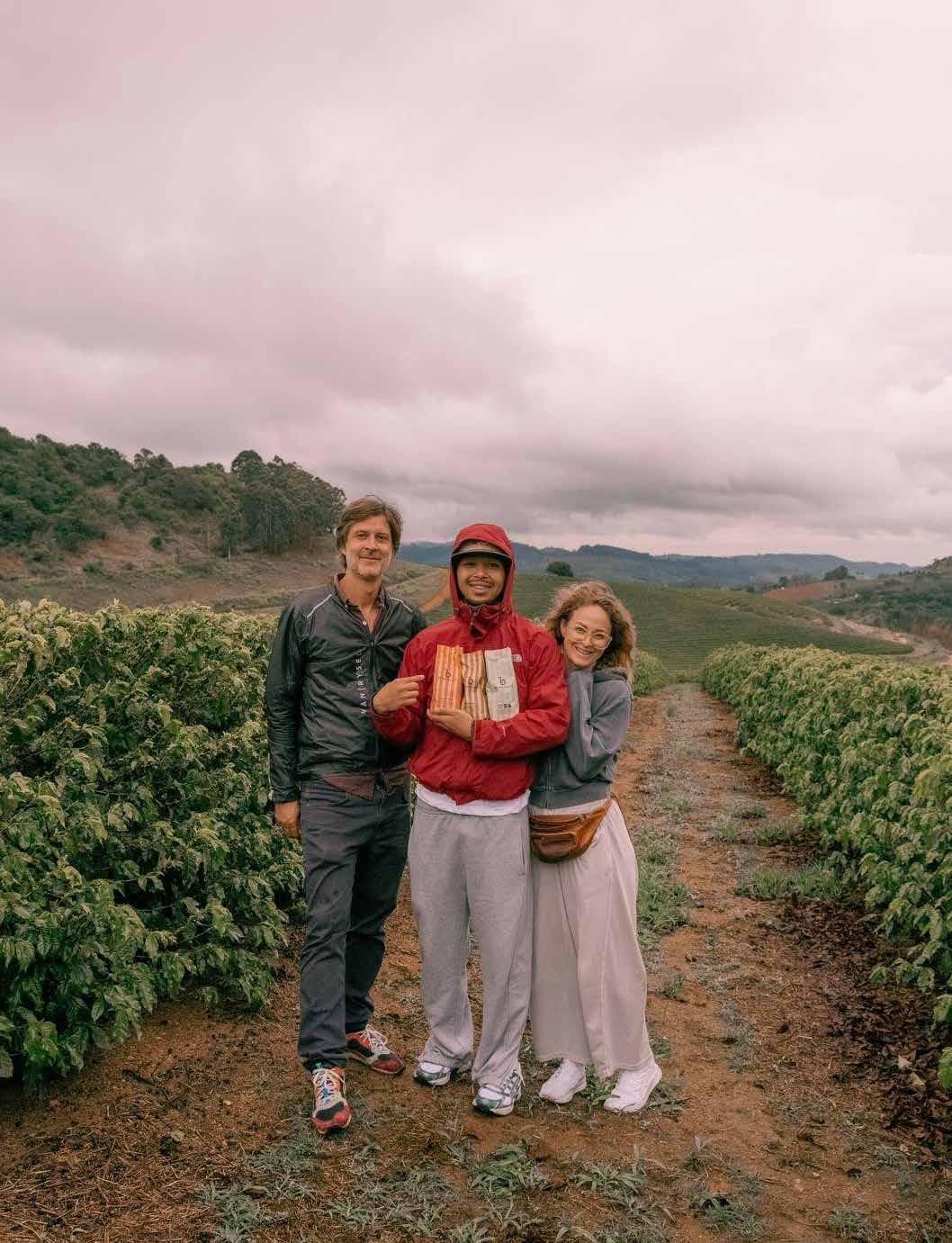
3.3 The origin of our measures
Founding member of the Swiss Sustainable Coffee Platform
The SSCP was launched on 6 June 2024 by the Swiss coffee industry, the Swiss government (represented by the State Secretariat for Economic Affairs (SECO)), civil society and academia. Blaser Trading AG is a founding member of the SSCP.
Vision and benefits
The vision of the platform is to create a coffee industry that respects the rights of all individuals, protects the climate and the environment, and ensures sustainable sourcing, leading to improved living conditions for producers and their families.
Membership in the SSCP provides access to shared resources, expertise and best practices, while strengthening leverage to address challenges such as climate change and income security. Especially for us as a rather small player in the coffee world, it makes sense to actively seek cooperation and consciously initiate new partnerships. Our goal is to have as catalytic an effect as possible and to strengthen co-operation within the industry. We aim to contribute to a more sustainable coffee industry through targeted exchange and joint initiatives.
www.coffeeplatform.ch
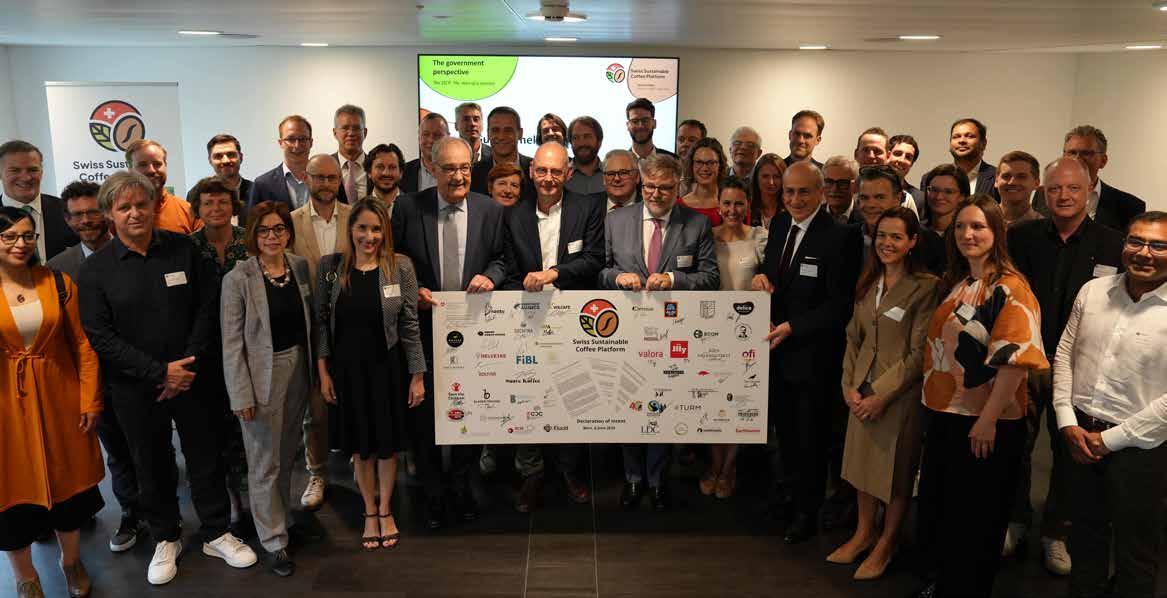
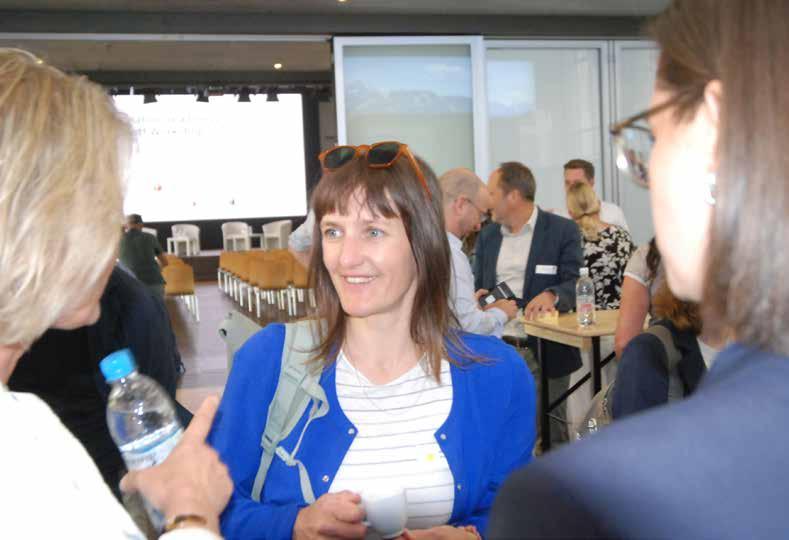
3.4 Quality control
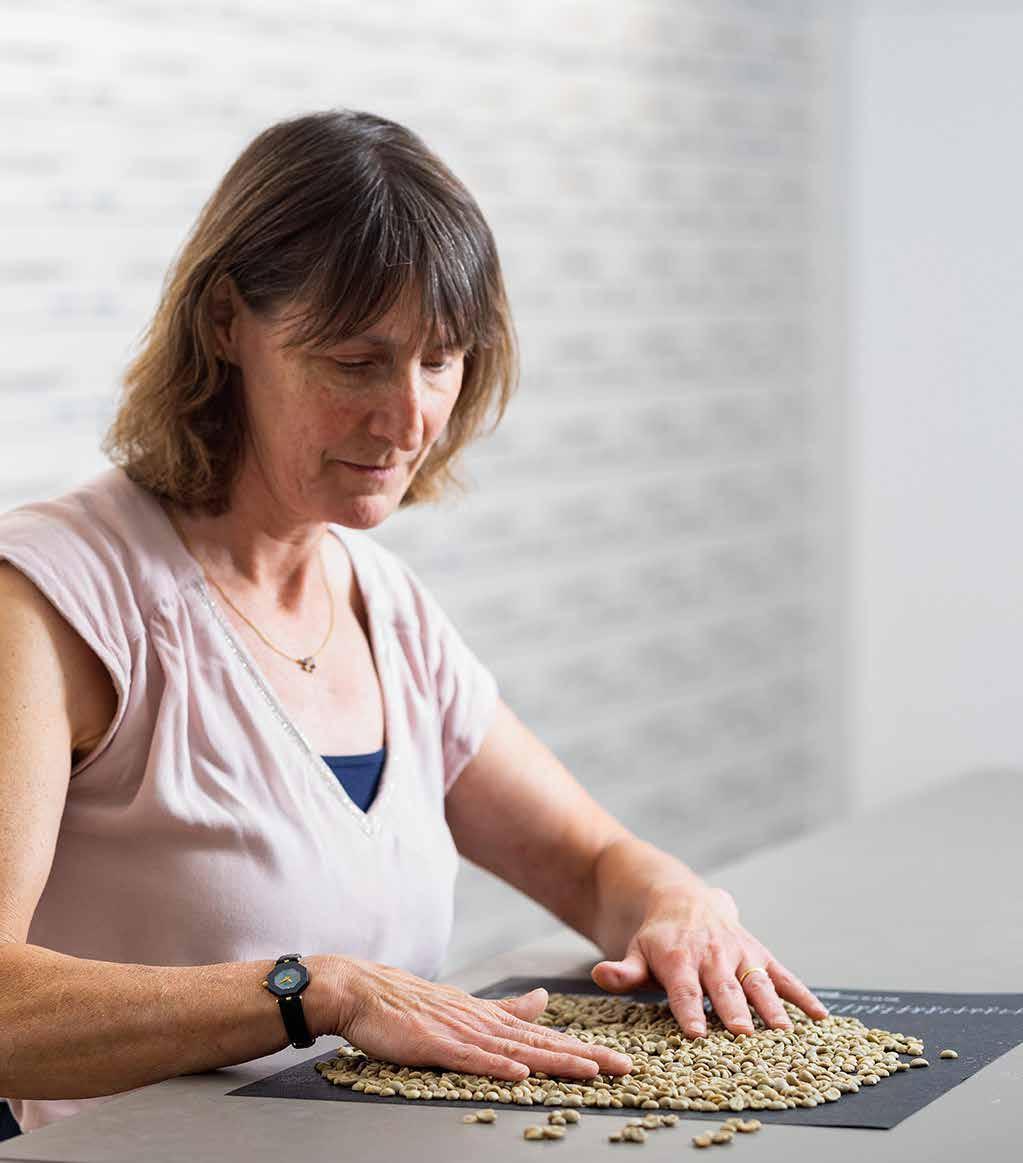
Effects
The trade and procurement of green coffee are subject to strict food safety standards and influence the product safety and quality of the coffee.
Measures
Our top priority is to guarantee food safety and the impeccable quality of our green coffees. We have a quality assurance department that ensures compliance with the usual market standards and guidelines. Visual (defect grading) and non-visual (screening, moisture, density measurement) testing are part of our quality control standards for green coffee.
Every day, several pre-shipment and arrival samples are tasted by our certified Q-Arabica Graders in our own cupping room and quality lab. In addition, our green coffee samples are systematically tested for pesticide residues, OTA and other contaminants in an external laboratory. Depending on customer requirements, further special tests are carried out.
The roasted beans left over from the cuppings are collected and utilised by coffee machine and coffee grinder manufacturers as test coffee.
3.5 Transport
Effects
CO2 emissions are also generated during the transport of the coffee beans. After the harvest, the coffee bags are transported from the farm to the processing plants and then to the warehouses. At the harbour, the coffee bags are shipped and transported by container ship to the port of destination. In the final step, the coffee bags are then transported to the roasting plant by lorry or train. Depending on the calculation, origin and destination, the entire transport accounts for between 10% and 25% of the total CO2 emissions of the coffee value chain.
We are aware that, in addition to the environmental impact, there are also potential social risks: For example, when loading and unloading the bags on the lorries or the working conditions of the crews on the container ships.
CO2 reduction measures
In co-operation with our partner Camiontransport, the Blaser Group saved over 11,124 kg of CO2e (equivalents) in 2024 thanks to a targeted shift to transport by rail. In this way, we can make a small contribution to reducing CO2 emissions. Our influence on making transport at origin or by sea more socially and ecologically sustainable is limited. However, the International Maritime Organisation (IMO) has set itself ambitious goals: by 2050, shipping companies should be transporting CO2-neutral goods.

Emission Report for 2024.
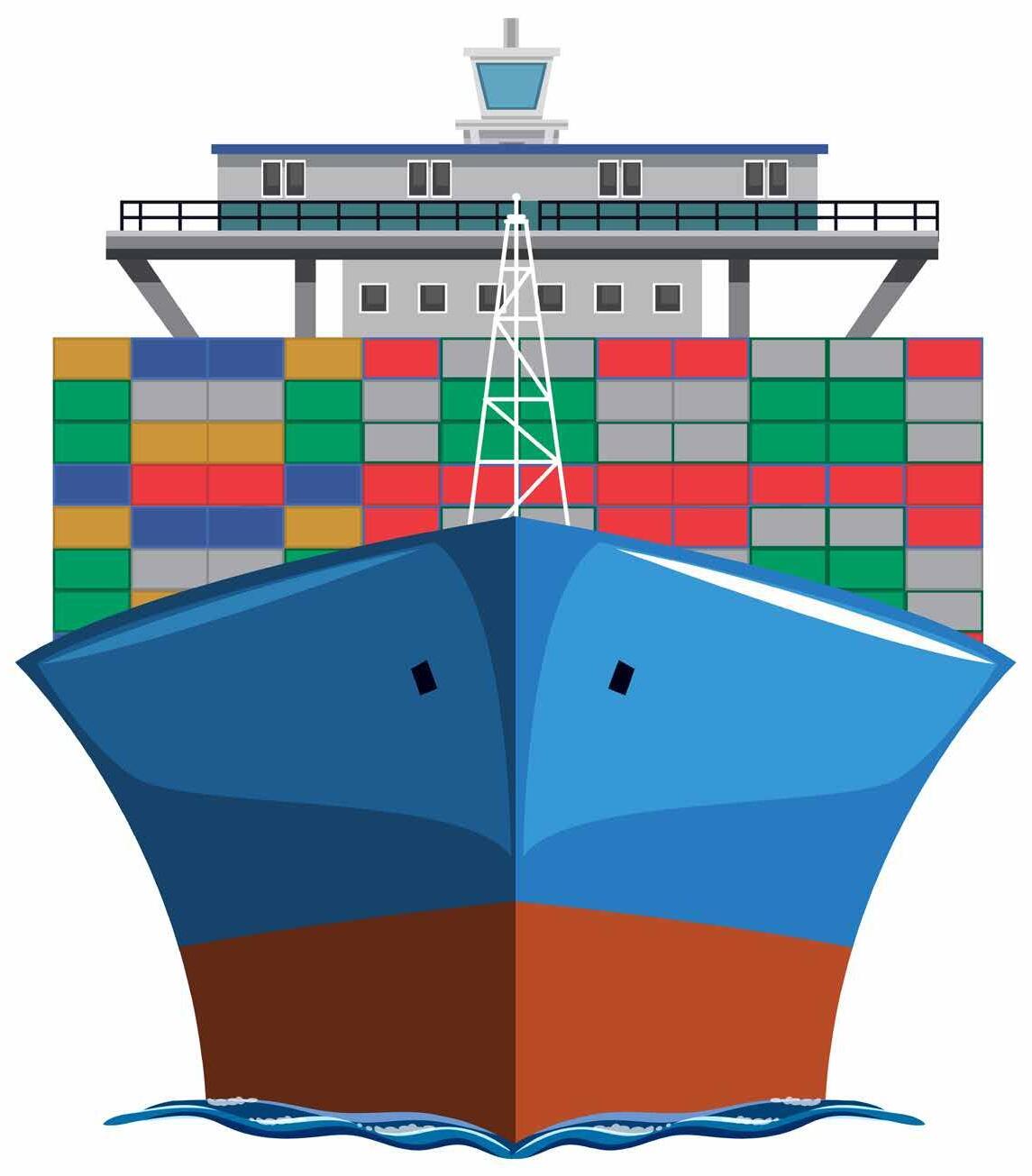
Roasted coffee
4.1 Facts about roasted coffee production
660 tonnes of certified coffee roasted
Production of certified roasted coffees
Savings of 118.5 MWh thanks to our heat recovery system
Energy consumption for roasted coffee*
Natural gas Electricity
*Incl. consumption of production, administration and buildings
Total quantity certified
Coffee production divided according to certification
Fairtrade
Rainforest Alliance Organic
Fairtrade and organic (double certification)
Caffé Speciali Certification
4.2 Challenges
In our production facility in the city of Bern, we roast fresh coffee every day, which is then ground or packaged as coffee beans and ultimately ready for sale to our customers. These process steps present us with various challenges in terms of sustainability. We cause CO2emissions through the roasting process, the processing and packaging machines as well as the transport of the finished roasted products to the customer.
We focus on the impeccably high quality of our coffees and attach great importance to fulfilling the high quality standards of our customers. We ensure that food safety standards are met. Our quality assurance department, which works hard every day to produce the best coffees, is just as important.
The high volatility of green coffee prices presented us with major challenges in 2024. We must be able to offer the high quality of our coffees at consistently attractive market prices. The sometimes scarce availability of green coffee worldwide at very high prices has an impact on our sustainability efforts. We must take this factor into account in our sustainability strategy.
On the one hand, we are faced with the growing demand for sustainable products from our final consumers. Our catering customers are also increasingly expressing this desire. At the same time, catering is a highly price-sensitive segment with very tight profit margins.
We are meeting these demands on the one hand with a growing number of sustainable coffees in our range. Over the past two years, we have added three certified blends each year, including limited editions that are or were only available for a short time. At the same time, we hope that by commissioning the working groups (section 2.2, p. 17), we will gain further insights into how we can make our roasted coffee range even more sustainable overall.
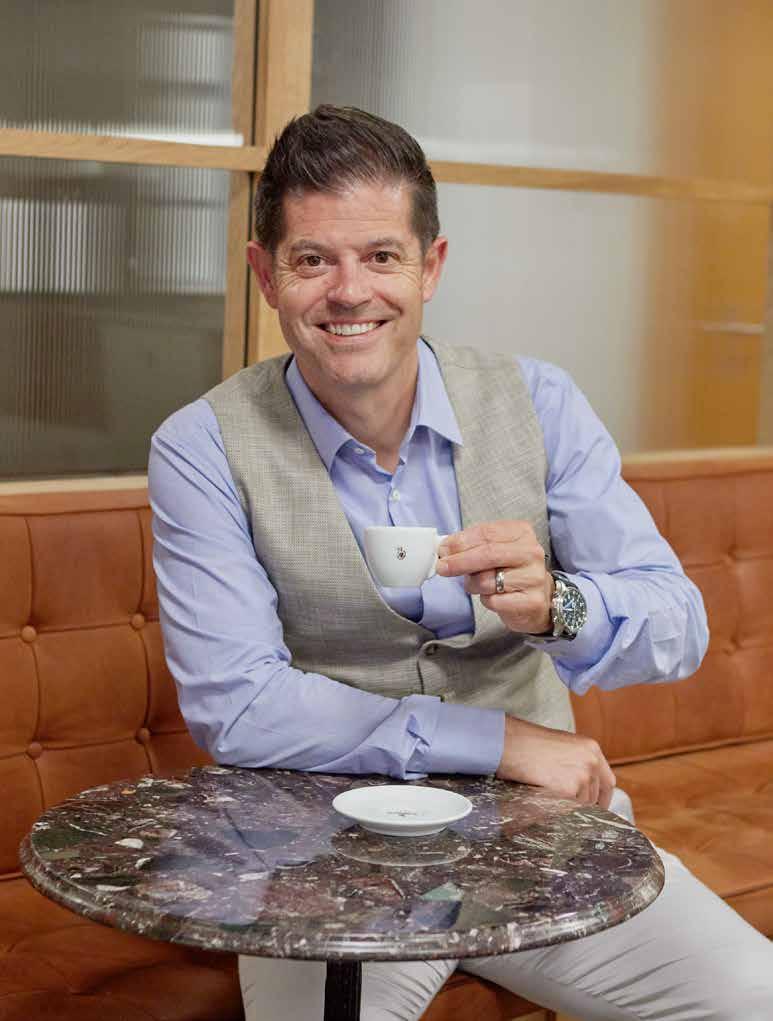
Marc Käppeli Managing Director Blaser Café AG
"It's very challenging to find the right balance between the high prices on the green coffee market and the growing demand for sustainable products."
4.3 Our measures
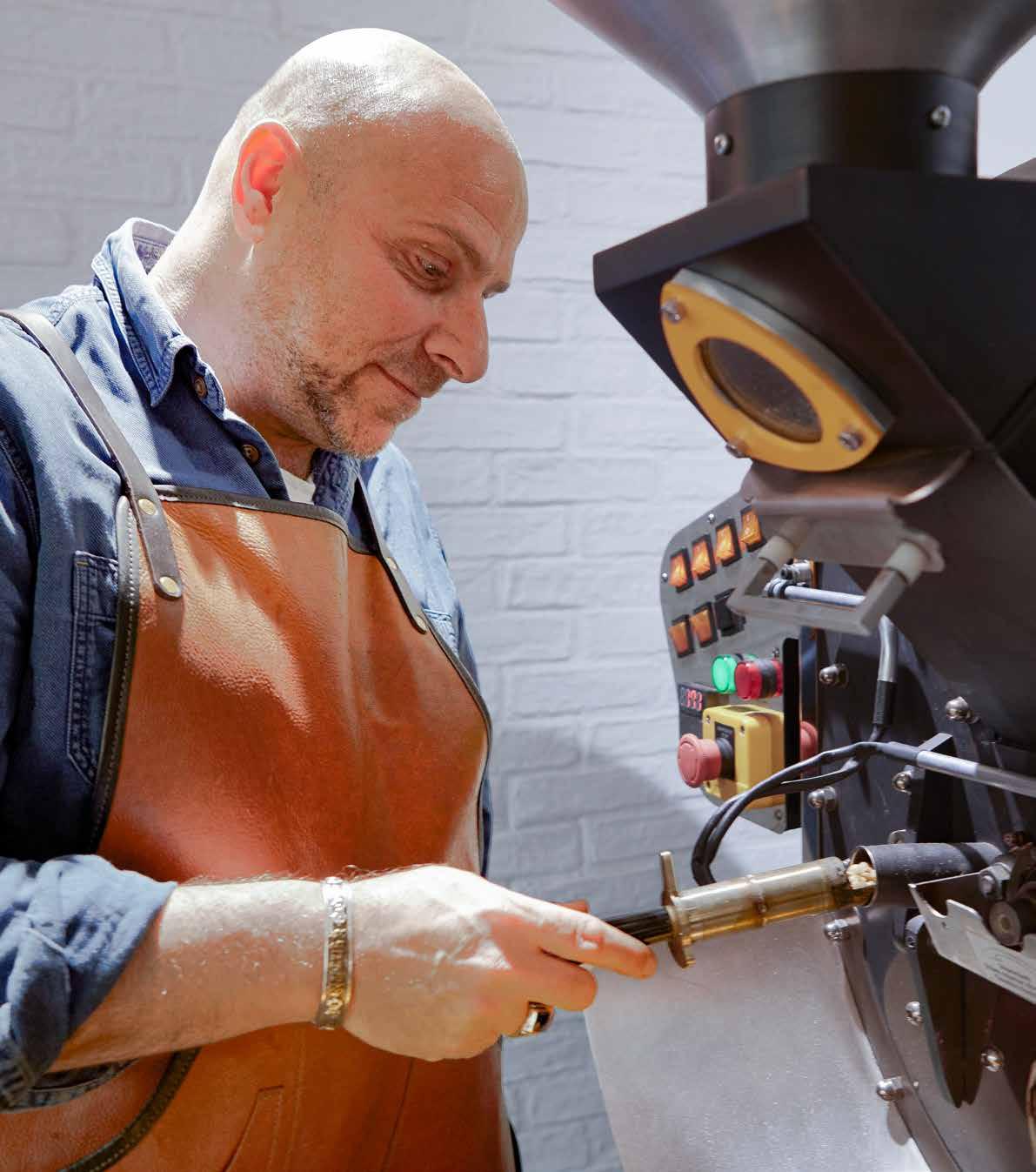
FSSC certification
Since 2022, we have complied with the FSSC 22000 standard, one of the highest internationally recognised food safety standards. This exceeds the legal requirements, not only in our company but along the entire roasted coffee value chain.
The FSSC 22000 standard is based on ISO 22000 certification and ensures that our internal self-assessment system and HACCP concept work properly and are regularly reviewed.
Continuous development of our quality system is therefore guaranteed. Measures to address complaints and feedback will be defined and integrated in the current system. This way, our internal operating procedures will be constantly reviewed and continuous further development ensured.
That will enable us to go on supplying our customers with safe products to the highest standard of quality and guaranteed taste in a dynamic environment.

4.3 Our measures
Heat recovery system
During the roasting process, the roasting gas is heated with a gas flame and the odorous substances are then burnt off in the catalytic converter. Since the end of February 2024, we have been able to reuse this waste heat generated during the roasting process by means of a heat recovery system. The energy generated is used to heat the building and for hot water preparation. We store the hot water in large tanks in the cellar. Installing the space-intensive systems in our building was a major technical challenge and involved a high level of investment.
"In 2024, we were able to generate 118.5 MWh with our heat recovery system. This roughly corresponds to the annual electricity consumption of 30 four-person households. "
Christoph Lauper Member of the Management Board
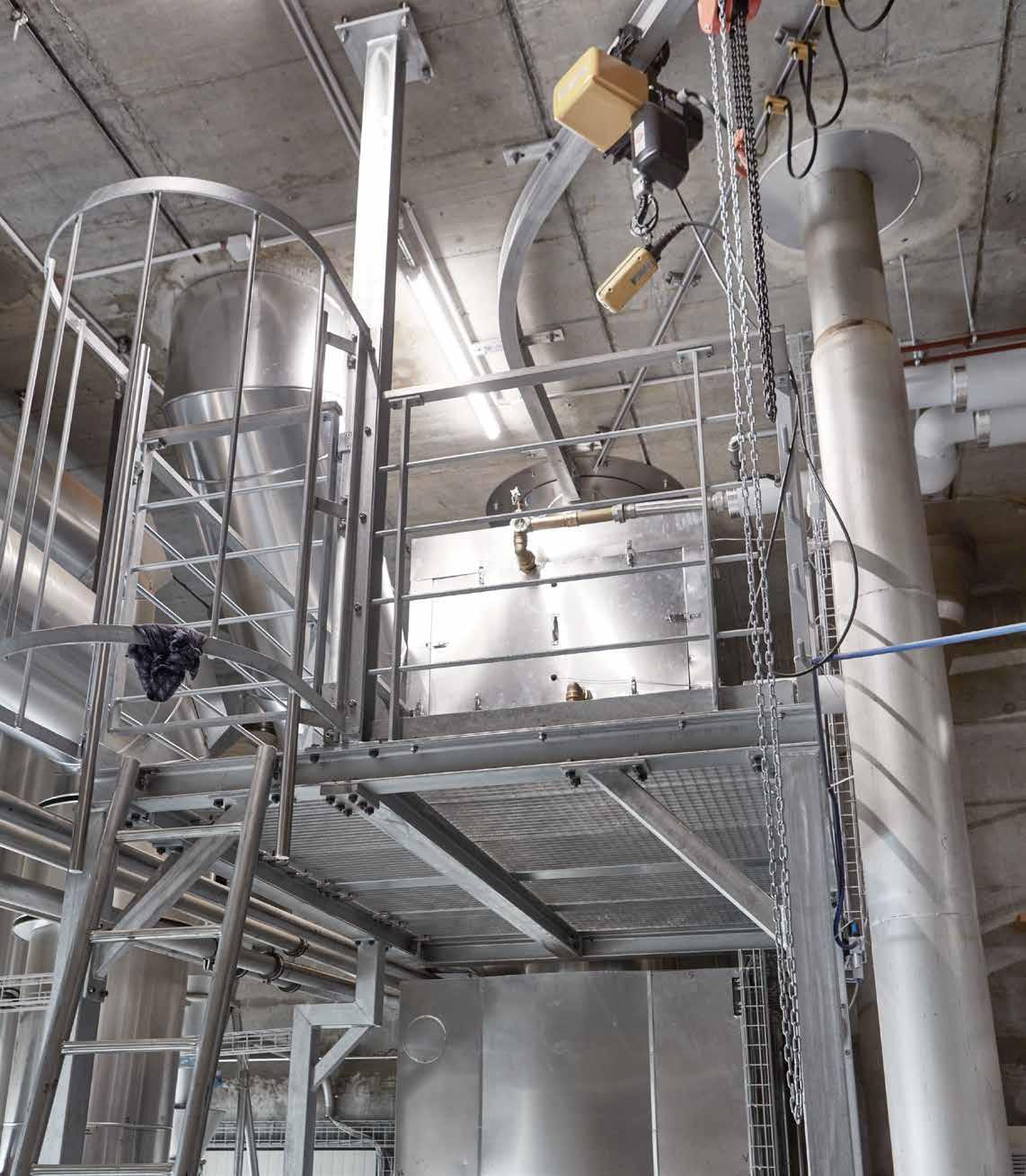
Our measures
Use of roasting waste
When coffee is roasted, the silver skins remain as a waste product. We press these into pellets, which are reused by an organic farmer. This enables him to heat his organic farm with four flats and almost 500 m2 of living space, including hot water preparation. The pellets are not burnt to ash, but instead are pyrolysed. The resulting biochar is then used in the cattle and pig barns. This improves animal health, reduces odours and makes the slurry more compatible with plants and soil. That is good for the climate and the soil. In this way, humus can be built up and the soil becomes resistant to future weather extremes caused by climate change.
Photovoltaic system
With the photovoltaic system on the building at Güterstrasse 6, we produce our own energy – around 50,000 kWh per year. This covers the daily energy requirements of our Rösterei Kaffee und Bar (coffee roasting plant and bar) on Güterstrasse with its adjoining training room.
Energy-efficient data centre
Our servers are operated in an external data centre. The operating company is a member of the Energy Agency for Industry (EnAW), which is committed to economical climate protection. All the data centres they operate are optimised for maximum energy efficiency and only use electricity from renewable energy sources (hydro, wind, biomass, solar). 4.3
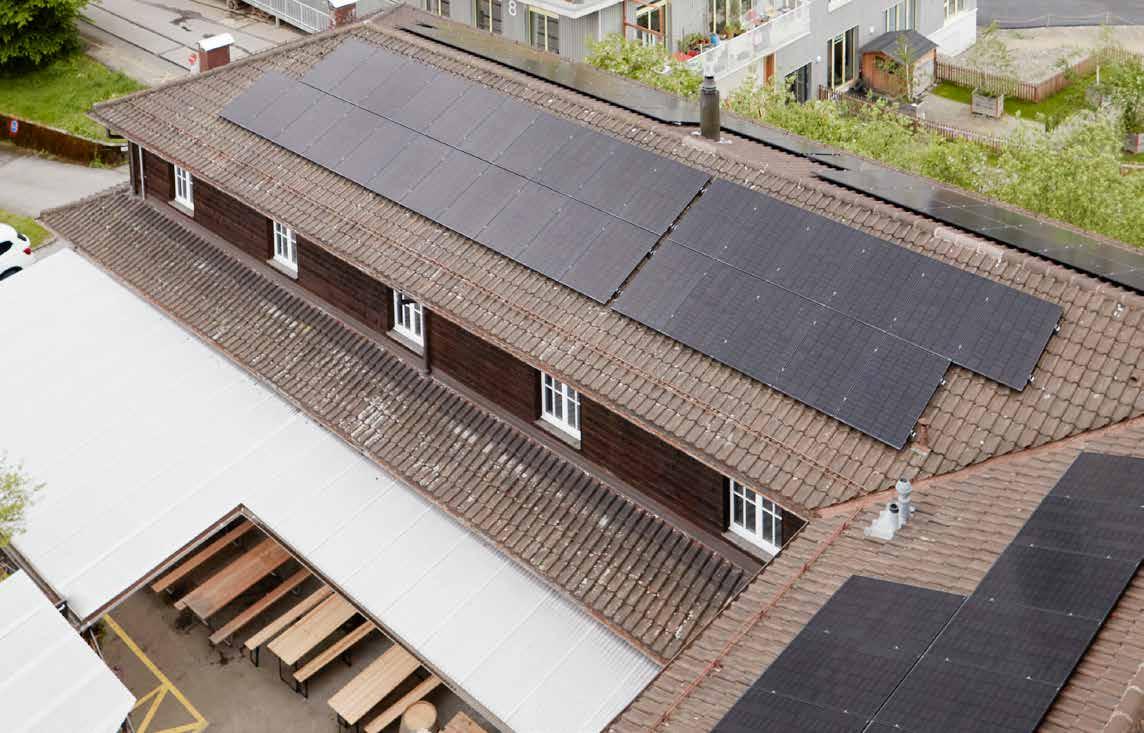
A PUE (Power Usage Effectiveness) of 1.20 and better is achieved. They achieve this with, among other things, heat recovery for heating the surrounding buildings and sophisticated air conditioning using state-ofthe-art technology.
4.4 Sustainable products
Sustainable products
The concept of sustainability is increasingly shaping our own product range. In 2024, the Management Board commissioned a working group to analyse how we can make our roasted coffee range even more sustainable in the future. You will find out more about the working groups in chapter 2.2. Principles and strategy
With the "Purista" blend, we have launched a Fairtrade-certified alternative on the market that can compete with conventional coffee in the price segment and which is therefore also attractive for the catering trade. We also added a Rainforest Alliance-certified terroir coffee from Vietnam to our range in 2024.
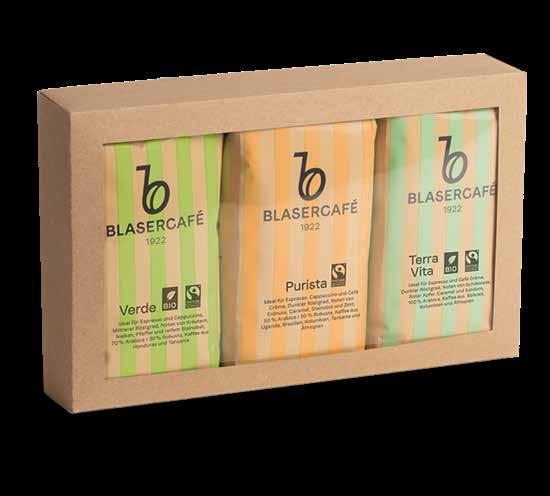
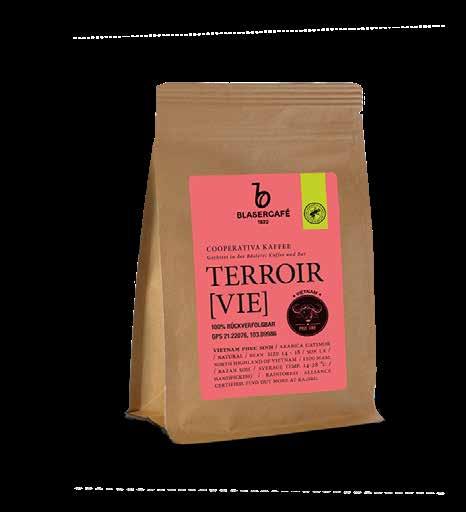
Against food waste
Since 2024, all our Rösterei Kaffee und Bar locations have been part of the Too Good To Go initiative with a clear goal: Saving food instead of wasting it. With the Too Good To Go app, we can offer unsold food at a fair price in the evening. The result is a win-win situation for us and for our guests. In this way, we are making a small contribution to reducing food waste, in which our guests can also participate. In 2024, it was already possible to prevent 130 food parcels from being thrown away.
Delivery by bike courier
Since 2024, we have been delivering most of our coffee to private customers in the city of Bern by bike courier. In total, we replaced 347 deliveries by motorised transport with bicycle couriers in 2024. This proportion is relatively small in relation to all deliveries. We are currently considering how we can further reduce CO2 emissions for our deliveries.
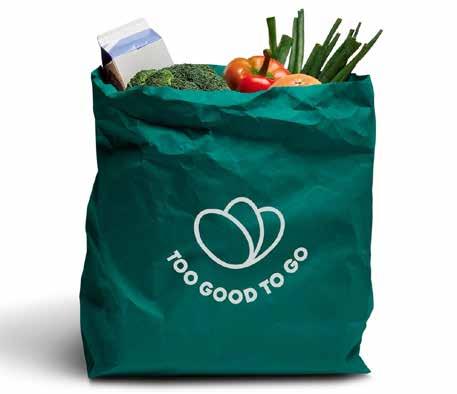
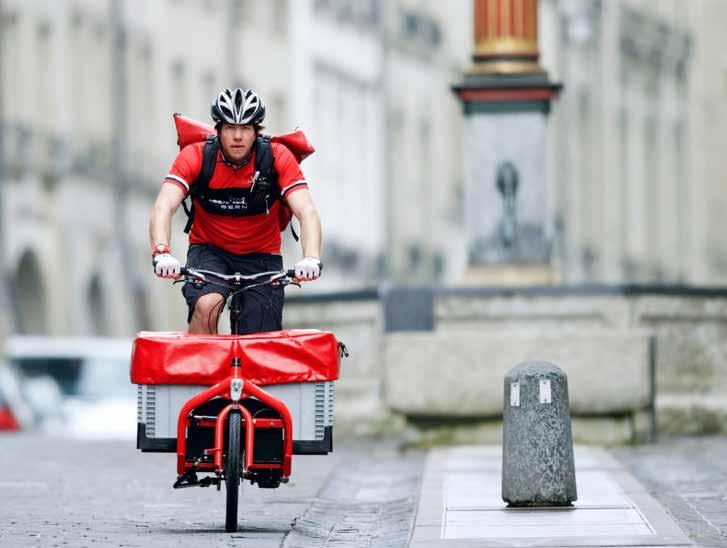

5.1 A look into the future
In 2025, we will gradually begin to implement our sustainability strategy. A particular focus here is on the systematic integration of sustainability into various areas of the company. The work of the three internal sustainability working groups is closely monitored with the goal of incorporating the ideas and approaches developed into strategy work and everyday work.
Blaser Trading AG – Green coffee trade
The EU Deforestation Regulation (EUDR) will also keep us very busy in 2025. After the EU Commission extended the deadline by one year, the situation will become serious as of 30 December 2025: All green coffee sold by us in EU countries must be EUDR-compliant by then. We are investing heavily in the development of appropriate processes and structures. The focus is on expanding and strengthening our due diligence activities, particularly with regard to EUDR-relevant aspects. We are also working on the further development of our risk management system. Closer cooperation with key stakeholder groups is planned, for example in risk analysis and the selection of suitable measures. This also includes discussions with management about a possible commitment in a coffee-producing country.
Blaser Café AG – Roasting production and catering
The focus will be on the roasted coffee working group, which will conduct an in-depth examination of ways in which we can make our roasted coffee range more sustainable. In 2025, at least two specific proposals are to be approved by the Management Board, which we intend to implement. In 2025, we will carry out an independent SMETA Social Audit of our roasting production. In this way, we aim to ensure that the required standards in terms of labour, health and safety, the environment and business ethics are met. We also see opportunities to become more sustainable within the company, for example by reducing waste and switching from disposable to reusable crockery from reCIRCLE in our Rösterei Kaffee und Bar.
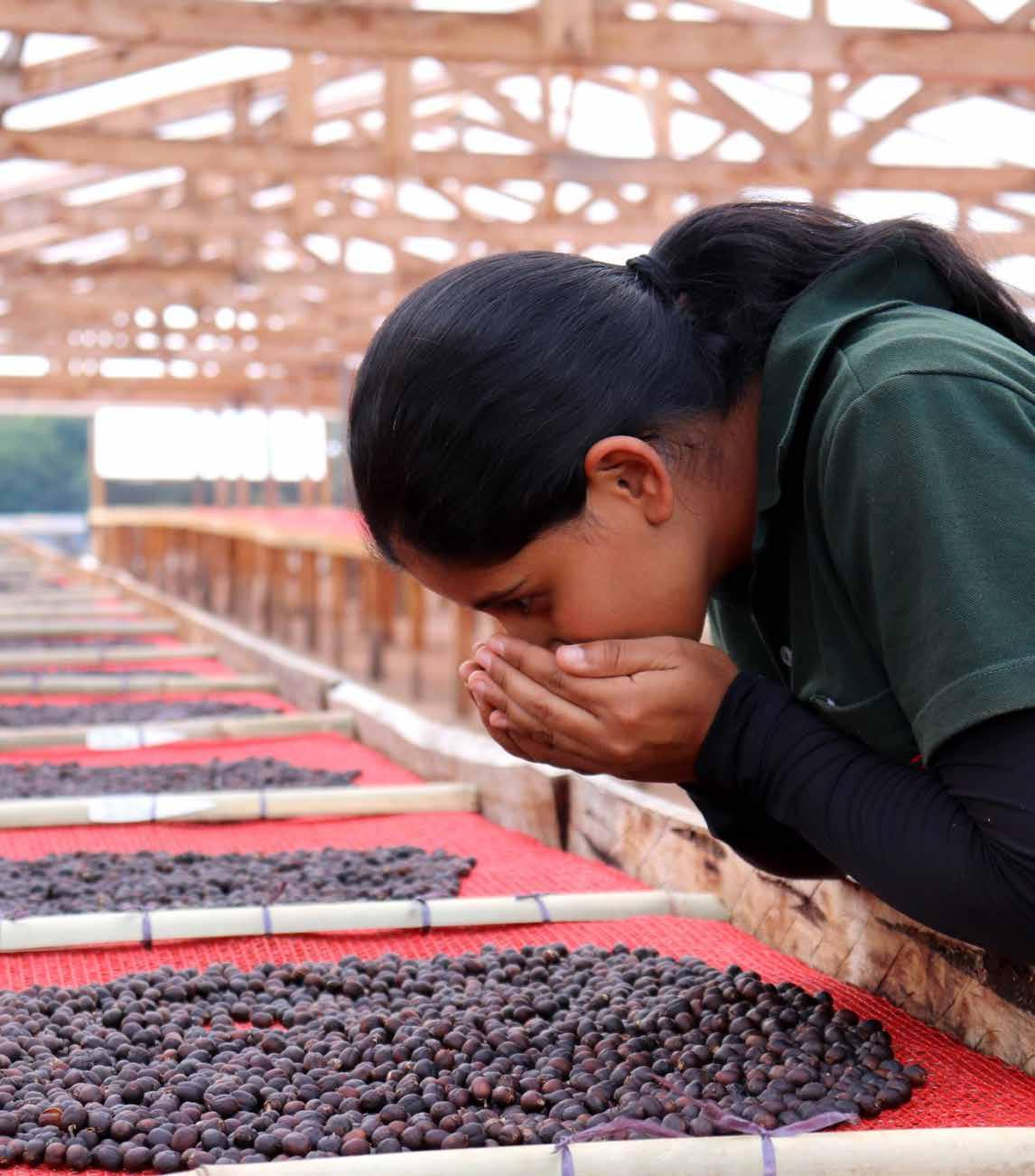
6.1 Memberships & certificates
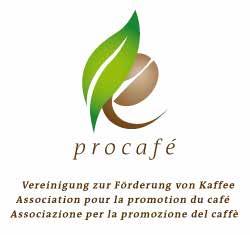




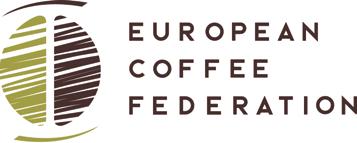

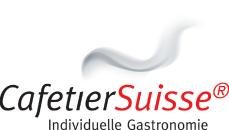
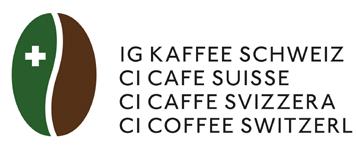
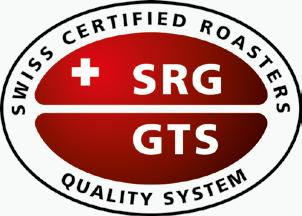



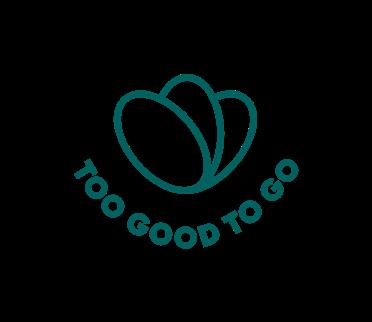

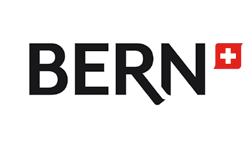
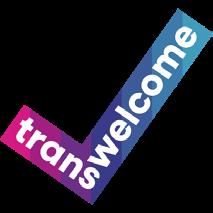
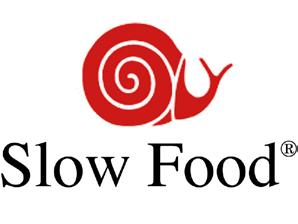
6.1 Memberships & certificates

Energie-Agentur der Wirtschaft
Blaser Café AG ist dabei!
Die Blaser Café AG ist seit 2015 Teilnehmerin bei der Energie-Agentur der Wirtschaft und setzt sich damit für einen wirtschaftlichen Klimaschutz ein.
Blaser Café AG setzt auf folgendes EnAW-Angebot: Zie vereinbarung Das Unternehmen hat sich zu Zielen zur Steigerung der Energieeffizienz und Reduktion der Treibhausgase verpflichtet. Die Ziele werden massnahmenorientiert über zehn Jahre umgesetzt, die Zielerreichung wird jährlich überprüft.
12.02.2024


Frank Ruepp
Energie-Agentur der Wirtschaft Ben am n Ma t Energie-Agentur der Wirtschaft

